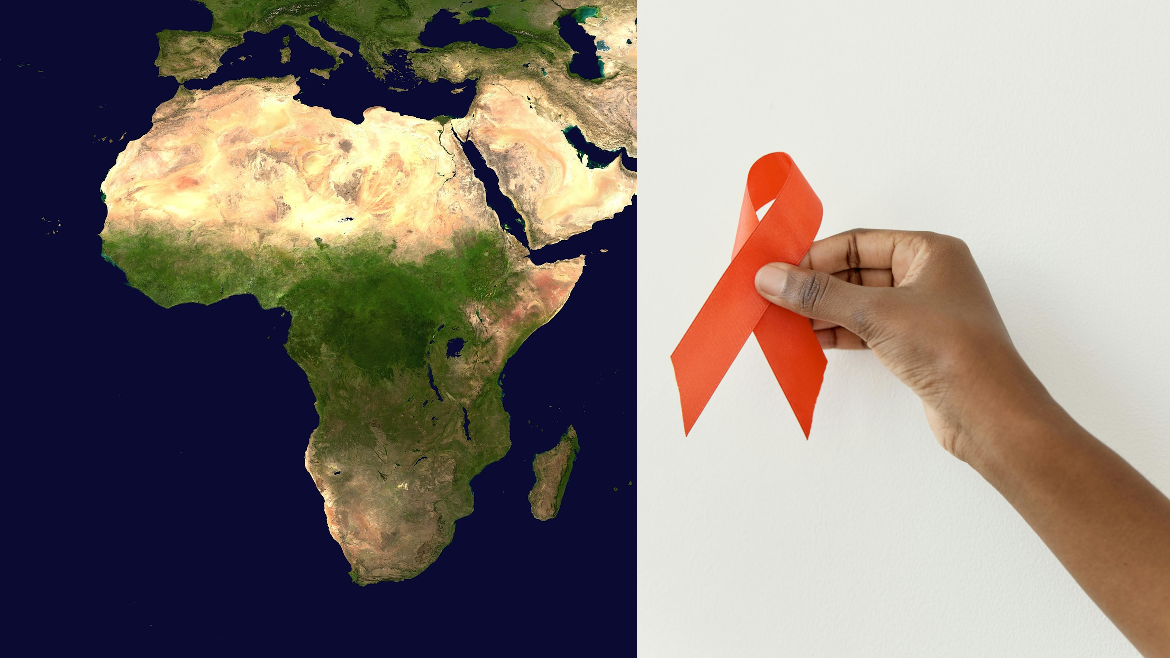
Ramón y Cajal Public Hospital collaborates in an HIV program in Equatorial Guinea.
Tuesday, November 19, 2024.
Dr. Holguín's group leads research and training in Equatorial Guinea to improve HIV diagnosis, treatment, and monitoring, reduce false positives, detect resistances, and train local staff. Their actions aim to control the epidemic and strengthen the country's health policies.
Read the full article here.
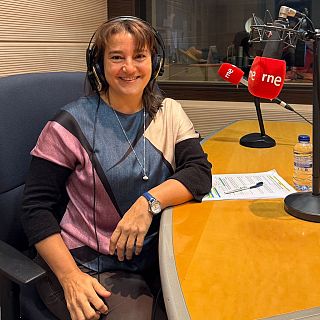
Participation in Radio Nacional de España on the program "A Ciencia Cierta"
Wednesday, October 9, 2024
África participated in the program 'A ciencia cierta' on Radio Exterior, part of National Radio of Spain (RTVE), to discuss pediatric HIV and explain the 'Que Cumplan Muchos Más' campaign in support of pediatric HIV research.
Link to the interview here.
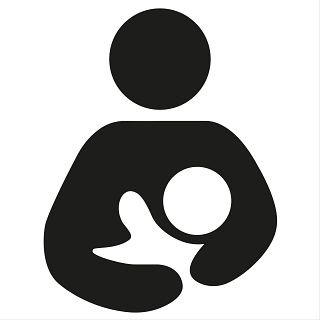
Participation in Radio Nacional de España on the program "Entre Probetas"
Tuesday, October 5, 2024.
África's participation in the program "Entre Probetas" on Radio Nacional de España to discuss "Projects Against Pediatric AIDS." Appearance at minute 23.
Link to the interview here.
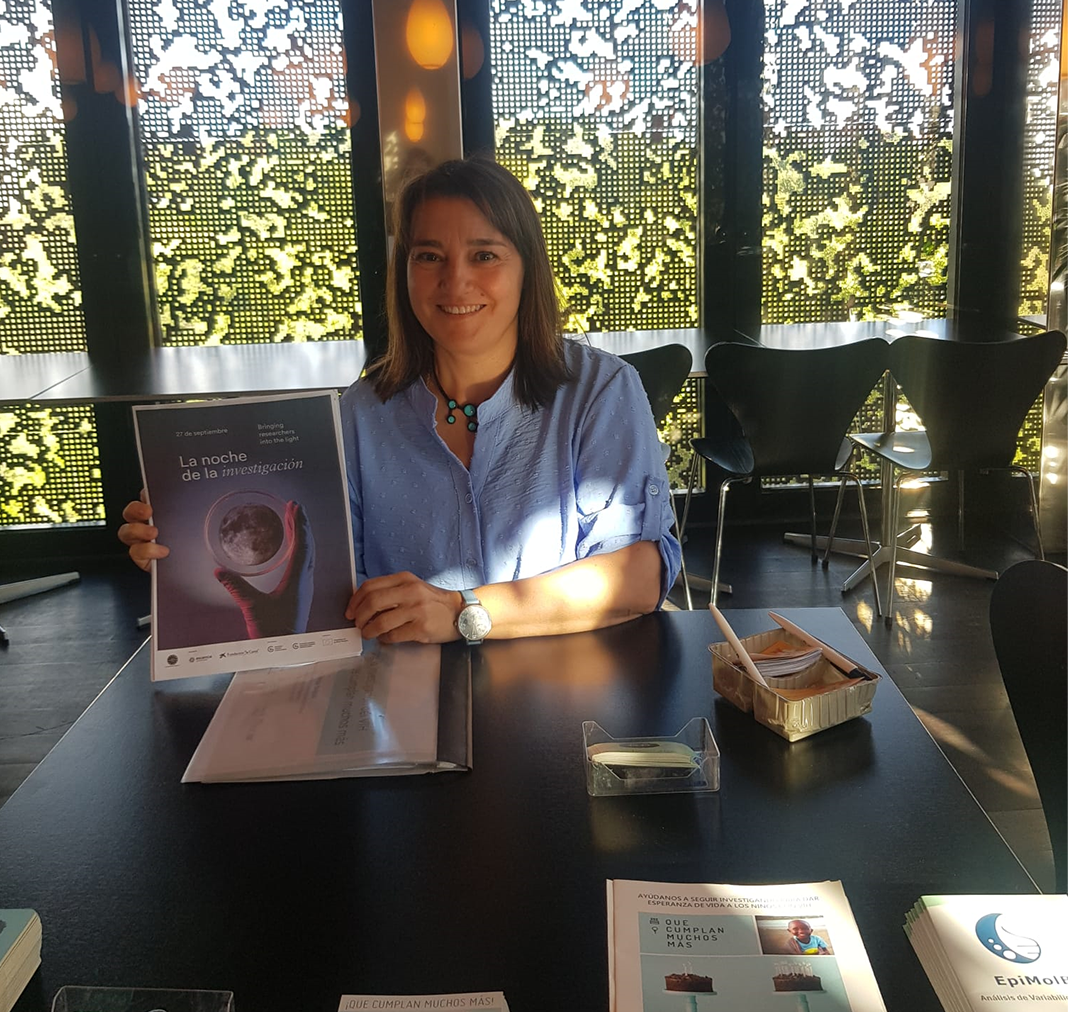
Great Recognition at the 2024 Edition of “The European Researchers' Night”
Friday, September 27, 2024.
The European Researchers' Night was held last Friday, September 27, and IRYCIS was represented in all formats: talks, research workshops, research fair, speed-dating, and storytelling. África and Carlos participated in The Researchers' Night at CaixaForum, Madrid, with two scientific micro-talks and a speed-dating session explaining the challenges of pediatric HIV worldwide and how to use new nanotechnologies for early HIV diagnosis.
Read the full article here.
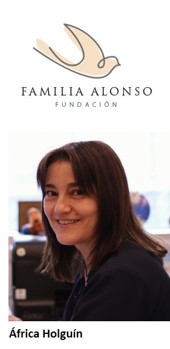
Great success in private calls led by research staff of the IRYCIS in 2023
Tuesday, May 14, 2024.
Among the projects highlighted by the IRYCIS, our project "Development and evaluation of new molecular diagnostic methods based on nanotechnology and the use of aptamers for the early diagnosis of pediatric HIV worldwide" stands out, led by Dr. África Holguín, in which Ana Valadés is employed and which will be part of her doctoral thesis. In this project, various innovative ultrasensitive nanotechnologies for the detection of different HIV proteins in infected children will be developed and evaluated using specific anti-HIV aptamers characterized by the group.
Read full article here.
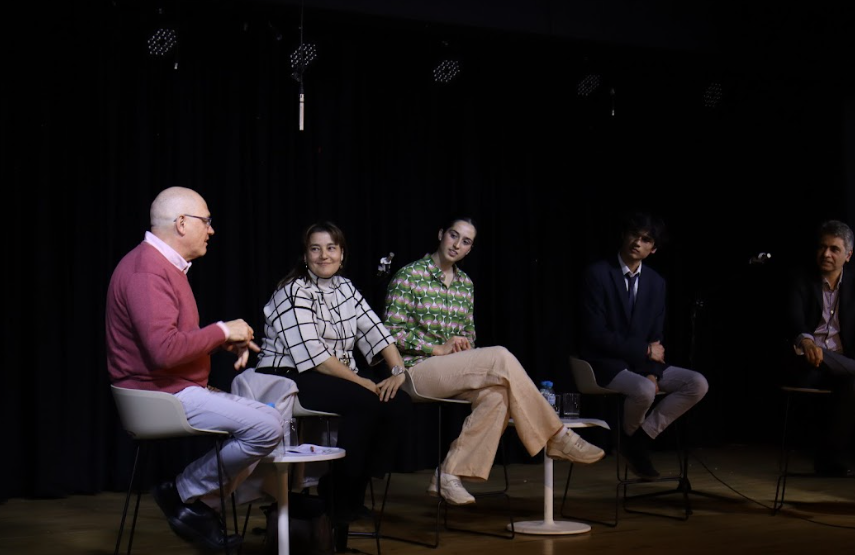
Success Panel King’s College Soto de Viñuelas
Friday, March 15, 2024.
Africa Holguín participates, along with 3 other scientists, in the King’s College Success Panel at an event aimed at disseminating science and motivating over 270 young students from King's College Soto de Viñuelas (Tres Cantos, Madrid) to pursue scientific careers addressing their concerns through the expertise of professionals from various scientific fields. The speakers shared their experiences in the discipline, the challenges and opportunities of a scientific career, and answered students' questions about their scientific work and personal experiences leading up to the discovery of their vocation and leadership.

First multicenter study in Spain on new HIV diagnoses in adolescents.
CIBER, Friday, March 15, 2024.
A new study, which includes the largest number of adolescents in Europe, coordinated by the team of África Holguín along with Cristina Epalza from the 12 de Octubre Hospital and the CIBERINFEC team, has evaluated infections by drug-resistant viruses used in therapeutic settings among adolescents with newly diagnosed HIV in Spain, describing transmitted resistance mutations and their possible transmission through clusters.
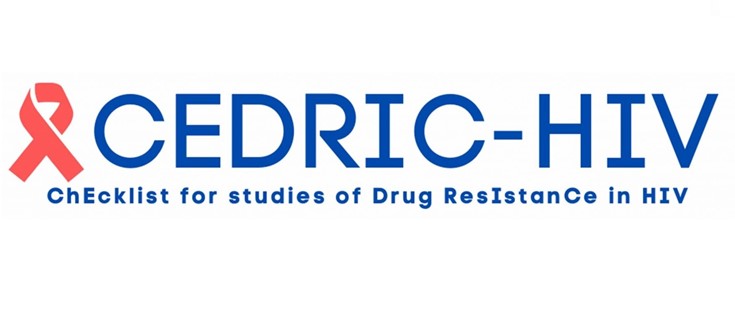
A new list will facilitate the design and publication of articles on antiretroviral resistance against HIV.
ciber-ESP, Friday, November 10, 2023.
África Holguín, a researcher at CIBERESP in the Molecular Epidemiology Laboratory of HIV-1 at IRYCIS-Ramón y Cajal Hospital in Madrid, has participated in an international study to develop CEDRIC-HIV, a list of essential items when conducting a study on resistance to anti-HIV-1 drugs.
Read the full article here
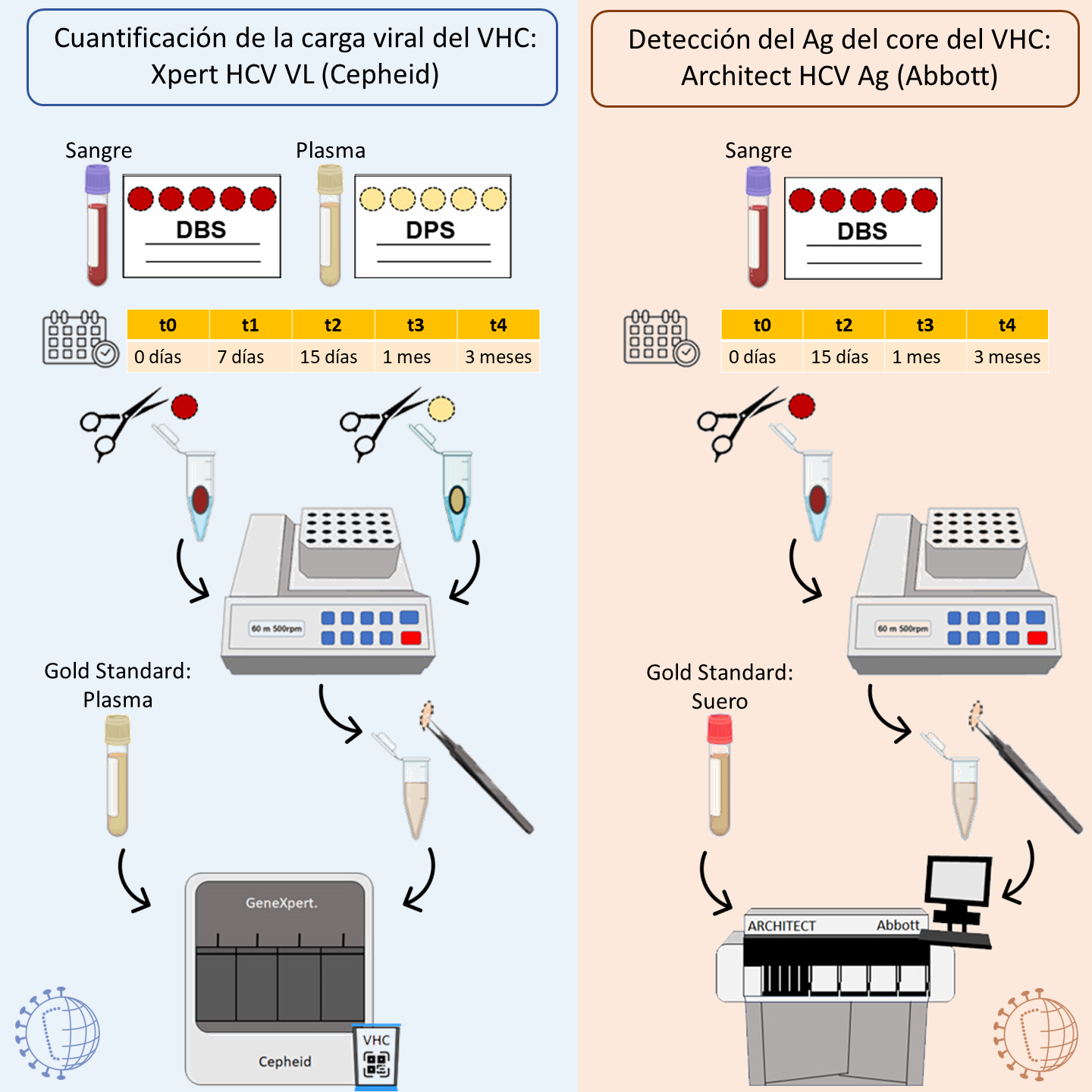
Confirmed the good performance of blood and dried plasma samples for the diagnosis of hepatitis C
ciber-ESP, Friday, September 22, 2023.
A new study conducted at Ramón y Cajal University Hospital in Madrid analyzed the performance of using blood and dried plasma samples (DBS and DPS) for the diagnosis of hepatitis C virus (HCV) using two different assays and evaluated the effect of storage time on their diagnostic performance.
Read the full article here

Great success in privately funded calls in 2022 led by IRYCIS researchers
IRYCIS, Monday, September 4, 2023.
The Familia Alonso Foundation supports the projects "Development of a new bioinformatics tool for the study of genetic variability of pathogens and genetic markers associated with diseases" and "Development and evaluation of new molecular diagnostic methods based on nanotechnology and the use of aptamers for early diagnosis of pediatric HIV worldwide" led by Dr. África Holguín from the Laboratory of Molecular Epidemiology of HIV-1.
Read the full article here
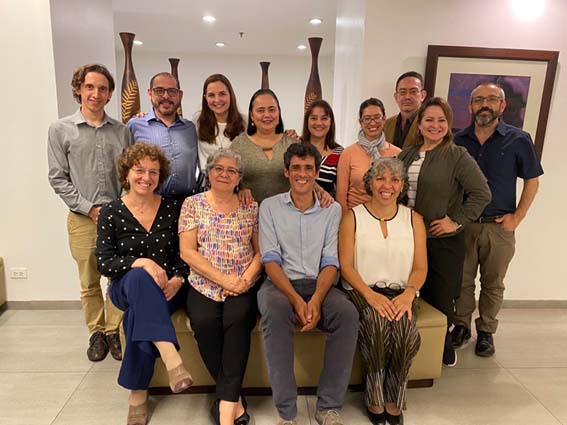
Teams from CIBERINFEC and CIBERESP and the Pan American Health Organization in the fight against pediatric HIV
infec, Tuesday, December 20, 2022.
Participation in the CYTED-PLANTAIDS NETWORK, which involves 9 countries in Latin America (Costa Rica, Ecuador, El Salvador, Guatemala, Honduras, Mexico, Nicaragua, Panama, and Venezuela), whose mission is to improve prevention, early detection, and treatment of pediatric HIV in Latin America.
Read full article here
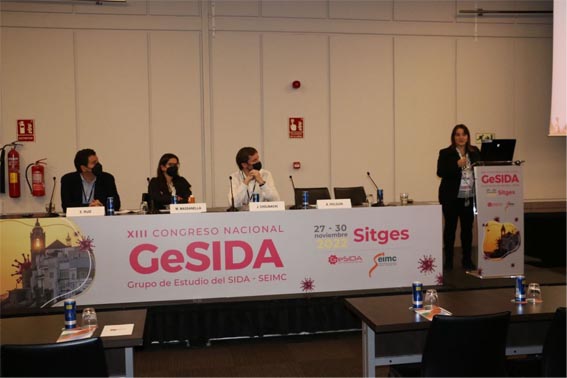
Participation in the XIII National GeSIDA Congress in the session focused on new technologies and applications for the study of HIV
GeSIDA, Monday, November 28, 2022.
The session was closed by Dr. África Holguín from the Ramón y Cajal University Hospital in Madrid, who spoke about new diagnostic techniques for HIV based on the use of highly specific aptamers, DNA or RNA sequences targeted against different proteins of HIV.
Read full article here
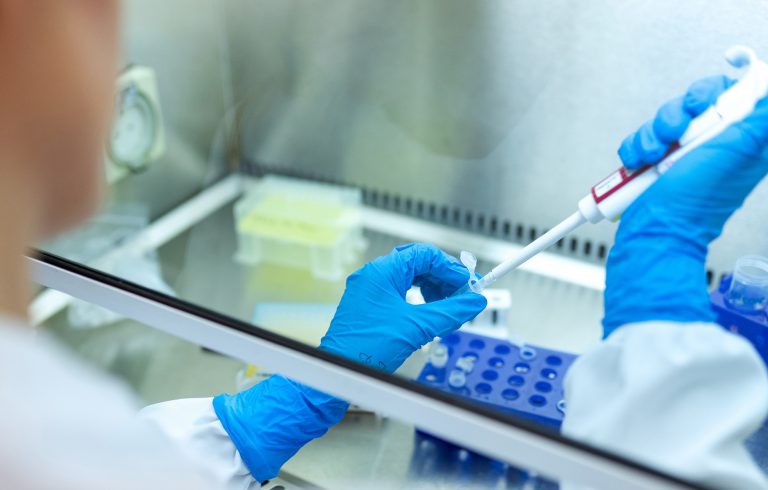
CSIC includes a hundred female researchers from Madrid's public health system among Spain's most prominent
isanidad, Monday, August 29, 2022.
More than a hundred female researchers from the public health system of the Community of Madrid are among the most prominent in all of Spain, according to the classification carried out by the Spanish National Research Council (CSIC). This research includes more than 5,000 women, both nationals and foreigners, who work in institutions across the country.
Read full article here
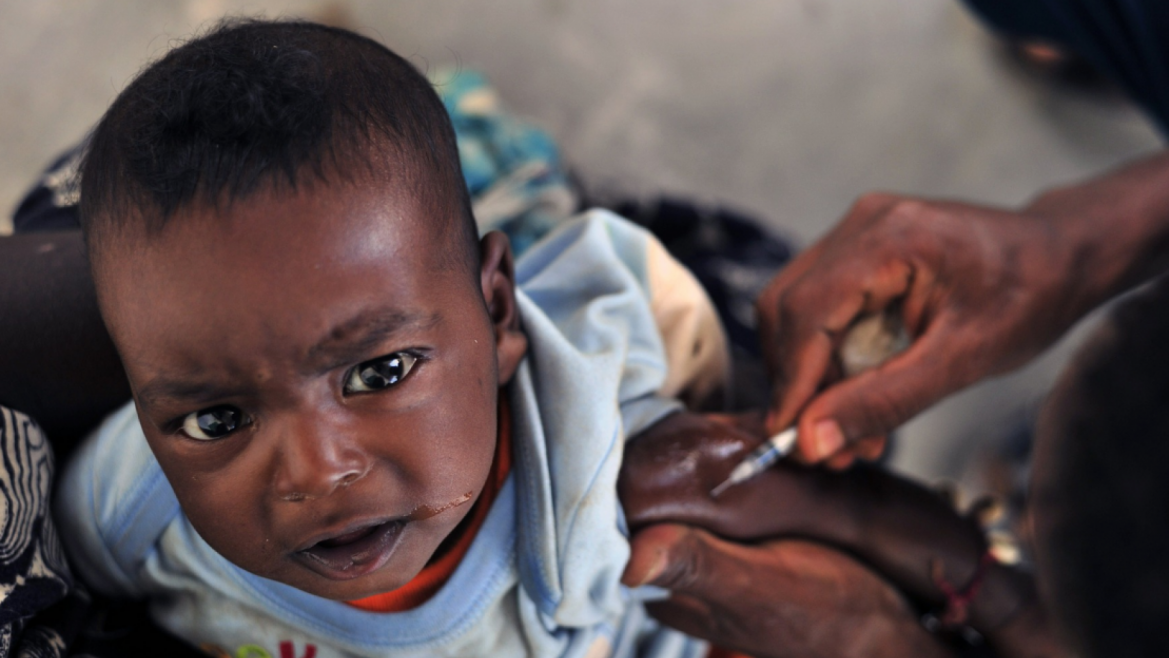
Ramón y Cajal Hospital publishes the first study on immunity to vaccine-preventable diseases in the pediatric population
Ramón y Cajal Institute, Friday, August 5, 2022.
A study published in Scientific Reports, led by Dr. África Holguín, researcher at the Ramón y Cajal University Hospital in Madrid and at the CIBER of Epidemiology and Public Health (CIBERESP), shows the coverage rates of protection for 6 vaccine-preventable diseases in a pediatric population of the Democratic Republic of Congo (DRC). They have also studied the validity of dried blood samples (DBS) to assess the immune response to vaccine-preventable pathogens.
Read full article here
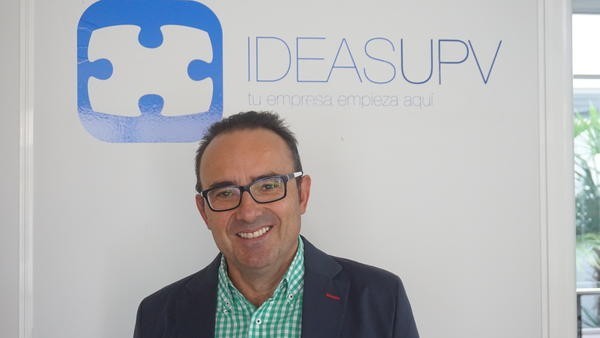
Today we have a special guest, virologist África Holguín
Cope, Wednesday, July 27, 2022.
Today is finally the charity concert that we have been announcing for so many days.
The charity concert in support of African children with HIV is today on the Gandia campus and virologist África Holguín tells us all about this disease.
Read full article here
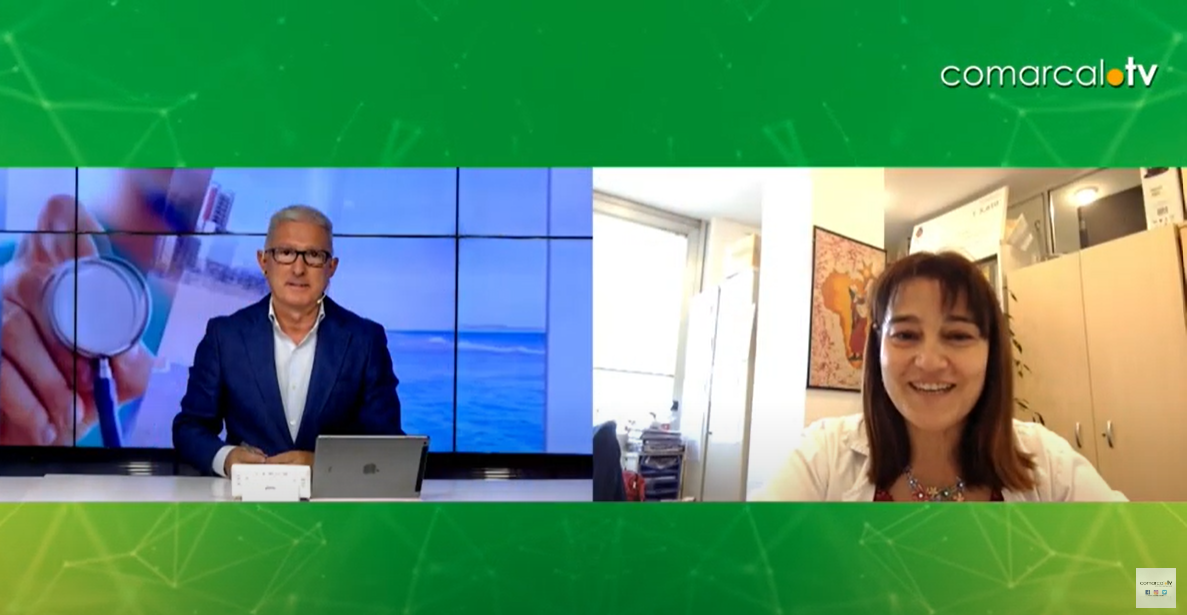
The Innovation Chair of the Polytechnic University of Valencia organizes a charity concert with international music in Gandia
Televisió Comarcal TV, Monday, July 25, 2022.
The Innovation Chair of the Polytechnic University of Valencia organizes a charity concert with international music in Gandia
Read full article here
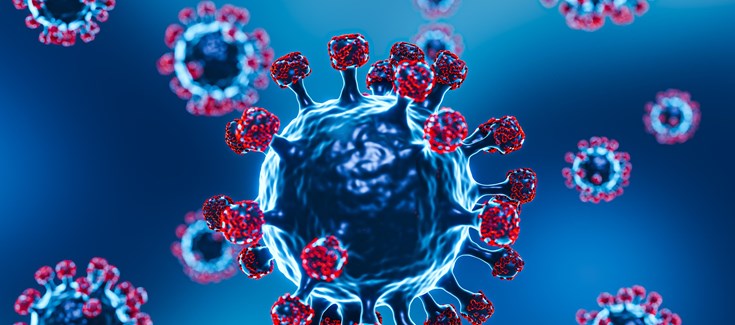
They study the genetic variability of SARS-CoV-2 in Spain during the first two years of the pandemic
CIBER/ IRYCIS, Friday, July 22, 2022.
A new study led by África Holguín, researcher at CIBERESP in the IRYCIS Research Institute, reveals how the SARS-CoV-2 virus, responsible for COVID-19, has evolved in Spain during the first two years of the pandemic (February 2020-January 2022).
Read full article here
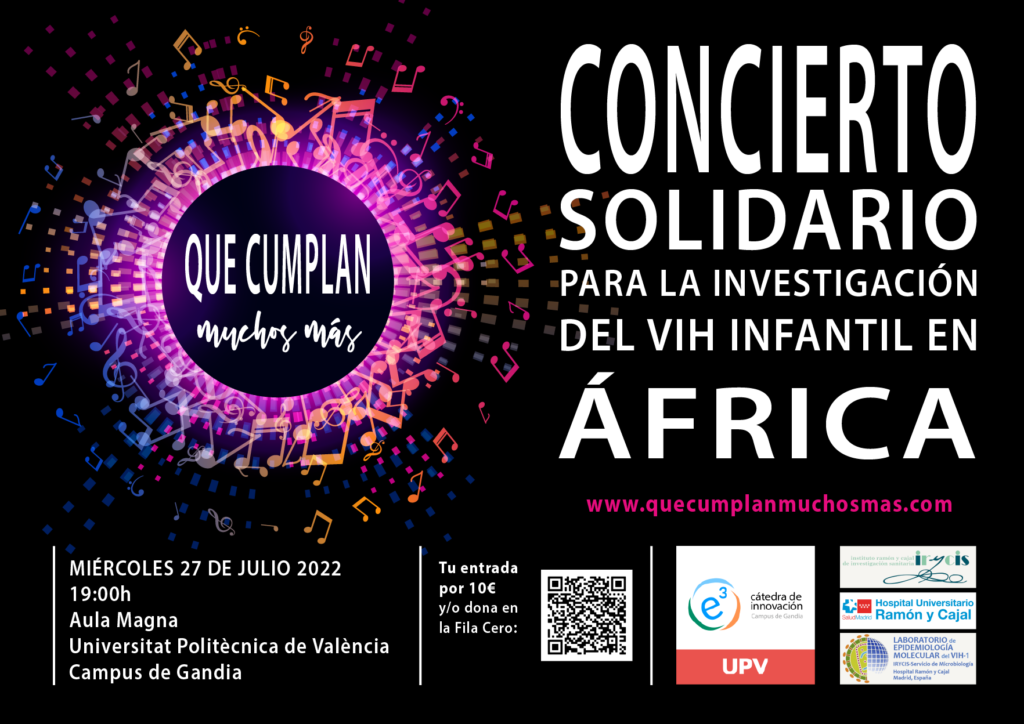
Solidarity concert at the Gandia Campus in support of pediatric HIV research in Africa
David Roldán, Wednesday, July 20, 2022.
The EpimolVIH Laboratory is dedicated to researching the pediatric HIV epidemic and to helping introduce more effective molecular techniques in countries with limited resources.
The Innovation Chair of the Gandia Campus of the Polytechnic University of Valencia (UPV) has organized a solidarity concert to be held on Wednesday, July 27, at 7:00 p.m., at the university's facilities. All proceeds from this concert will go to the "Que cumplan muchos más" campaign of the Molecular Epidemiology of HIV Laboratory at the Ramón y Cajal Institute for Health Research.
I recommend listening to this audio from iVoox! MAS DE UNO SAFOR VALLDIGNA - Interview with África Holguin (Head of Molecular Epidemiology of HIV) 27-07-22 here
Read full article here
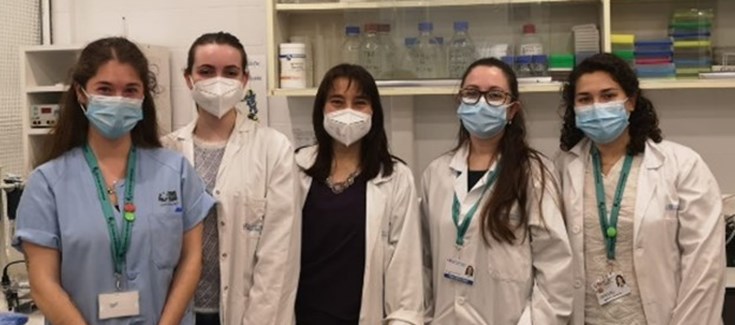
Studying immunity to vaccine-preventable diseases in children and adolescents with and without HIV in Kinshasa
IRYCIS / CIBER, Tuesday, July 5, 2022.
A study published in Scientific Reports, led by CIBERESP researcher África Holguín, reveals the coverage rates of protection for 6 vaccine-preventable diseases in a pediatric population of the Democratic Republic of the Congo (DRC). The study also examined the validity of dried blood samples (DBS) to assess immune response to vaccine-preventable pathogens. The study was conducted at the Ramón y Cajal Institute for Health Research (IRYCIS) and the Microbiology Service of the Ramón y Cajal University Hospital in Madrid.
Read full article here
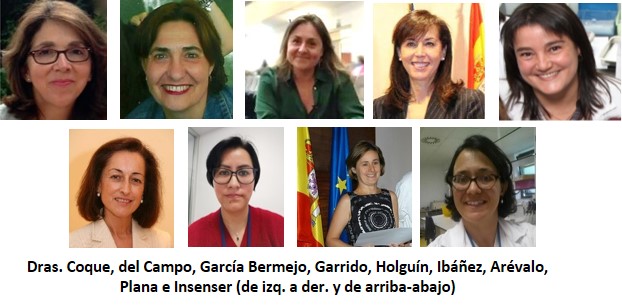
Nine Researchers from IRYCIS Featured in the "Ranking" of the Top 5,000 Scientists in the Google Scholar Database Published by CSIC
IRYCIS, Friday, June 10, 2022.
In its commitment to gender equality policies, the CSIC has just released the first edition (June 2022) of the ranking of Spanish and foreign researchers working in Spain according to the data from their professional public profiles on Google Scholar. This edition consists of the top 5,000 researchers ranked by highest h-index and secondarily by number of citations.
Read full article here
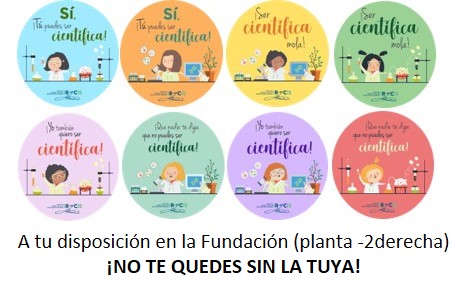
IRYCIS Celebrates "International Day of Women and Girls in Science" on February 11
IRYCIS, Friday, February 11, 2022.
Once again, IRYCIS recognizes the importance of visibility for women scientists and the role they play as inspiration and examples for girls and adolescents, our future scientists. The future generation is shaped from the present by creating new and better role models, bringing opportunities closer to boys and girls alike, and showing them that they can become whatever they aspire to be.
For several years, researchers from IRYCIS have visited educational centers, both in person and virtually, to disseminate their work in science, bring research closer to children and adolescents aged 3 to 18, and present an inclusive research model where they are equally regarded as hardworking, listened to, and valued as their male counterparts.
Read full article here
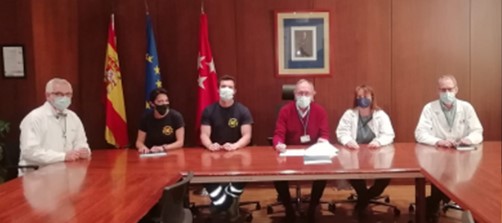
RENEWAL OF THE AGREEMENT WITH FIREFIGHTERS HELP FOR PEDIATRIC HIV
IRYCIS, Wednesday, December 15, 2021
The Molecular Epidemiology Laboratory of HIV-1, led by Dr. África Holguín and affiliated with the Microbiology Service of our Ramón y Cajal University Hospital and the Biology and Evolution of Microorganisms Group (Area 2 of IRYCIS), has among its objectives to carry out Research Projects in COVID-19 and pediatric HIV/AIDS. In the search for support to achieve this important goal, for some time now, they have been collaborating with Bomberos Ayudan, an association of firefighters in Madrid of relatively new creation. Seeing the serious social situation we are going through, they have decided to go beyond our own borders and help fellow citizens even when they are off duty.
Read full article here
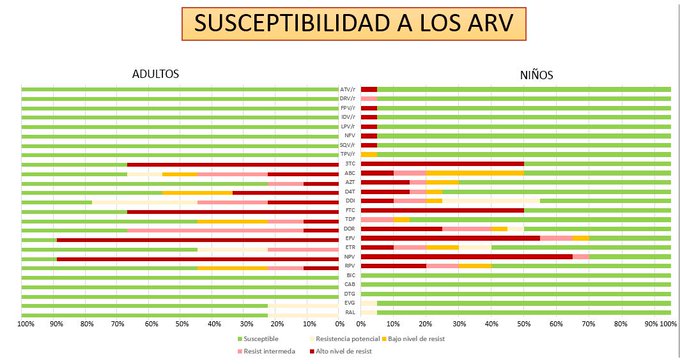
VICE MINISTER OF GUINEA VISIT AND OUR REPORT ON HIV IN THAT COUNTRY
Twitter, November 16, 2021
Last Monday, we shared with the Guinean delegation from #MINSABS @GuineaSalud, Vice Minister @MitohaOndo, and the Ambassador of the Republic of Equatorial Guinea, Miguel Edjan, the most current data on the HIV epidemic in the country.
Read full article here
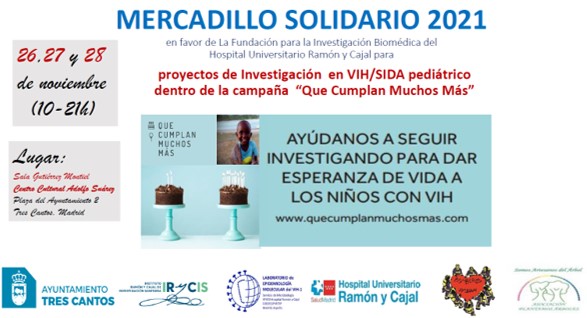
SOLIDARITY MARKETS IN TRES CANTOS FOR PEDIATRIC HIV
IRYCIS, October 26, 2021
The Laboratory of Molecular Epidemiology of HIV-1, led by Dr. África Holguín and affiliated with the Microbiology Service of our Ramón y Cajal University Hospital and the Biology and Evolution of Microorganisms Group (Area 2 of IRYCIS), aims to carry out Research Projects on COVID19 and Pediatric HIV/AIDS. To achieve this goal and to obtain funding, they organize multiple activities, the most recent of which is under the motto: "Solidarity markets for research on pediatric HIV at the IRYCIS-HRC".
Read full article here
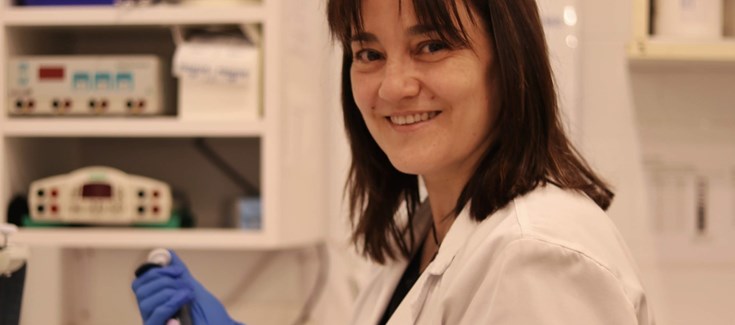
DISSEMINATION OF OUR WORK IDENTIFYING IMMUNE MARKERS DIFFERENTIAL IN CHILDREN WITH AND WITHOUT HIV EXPOSURE
CIBER | Monday, July 19, 2021
Simple exposure to HIV, without actual virus infection, alters the level of certain immune biomarkers in children. This is demonstrated by a study conducted by researchers from CIBERESP, the Ramón y Cajal Institute for Health Research (IRYCIS), and the Institute of Hospital Universitario La Paz Research (IDIPAZ), which has just been published in the journal Frontiers in Medicine.
Read full article here.
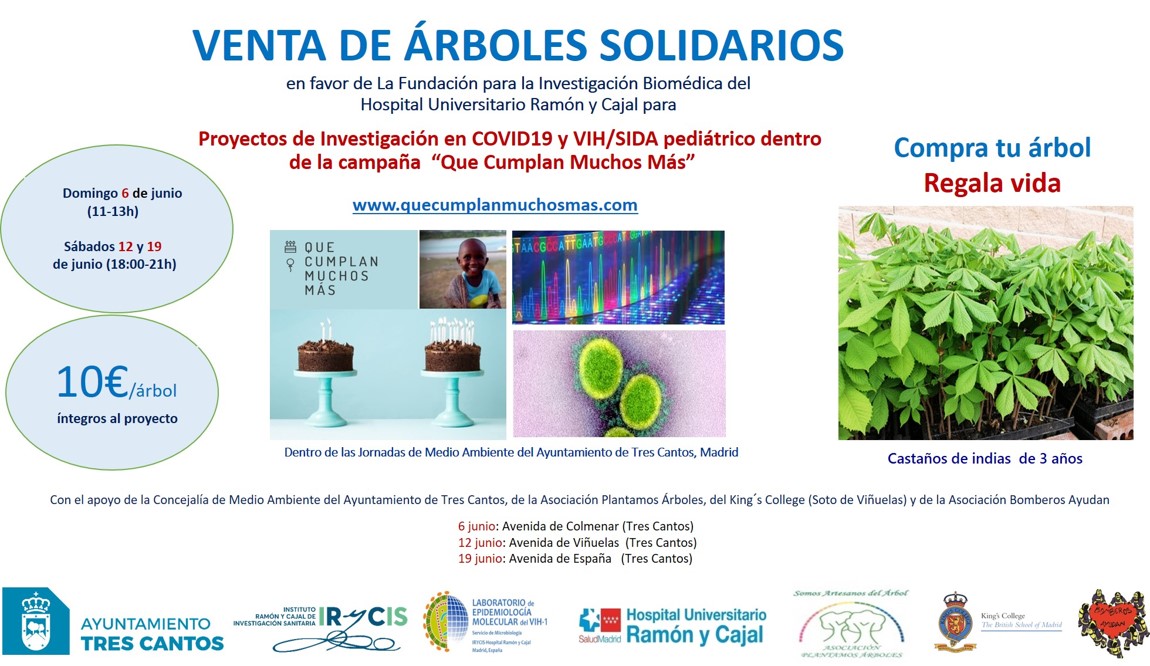
Solidarity Tree Sale for Pediatric HIV
CIBER | Wednesday, May 5, 2021
The Laboratory of Molecular Epidemiology of HIV-1, led by Dr. África Holguín and affiliated with the Microbiology Service of our Ramón y Cajal University Hospital and the Biology and Evolution of Microorganisms Group (Area 2 of IRYCIS), aims to carry out Research Projects on COVID19 and pediatric HIV/AIDS.
To this end, and to obtain funding, they carry out multiple activities. The most recent is framed under the slogan: "Buy your tree. Give life," and consists of the sale of solidarity trees on Sunday, June 6, from 11:00 a.m. to 2:00 p.m. and on Saturdays, June 12 and 19, 2021, from 6:00 p.m. to 9:00 p.m., at various locations in Tres Cantos, Madrid.
Read full article here
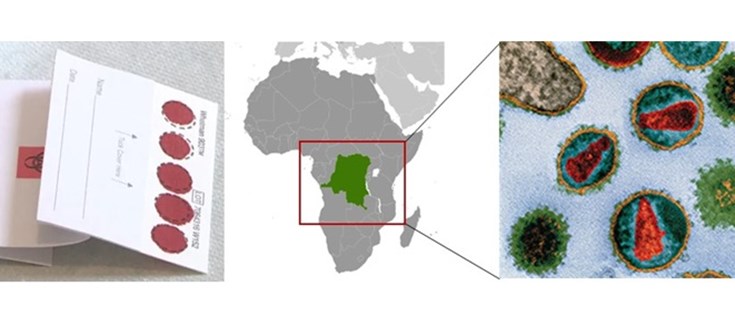
Dissemination of Our Work Identifying Resistant Viruses in Children with HIV from Congo
CIBER | Wednesday, May 5, 2021
A new study led by África Holguín, researcher at CIBERESP in IRYCIS - Ramón y Cajal University Hospital in Madrid and member of the Translational Research Network in Pediatric Infectious Diseases (RITIP), describes for the first time the resistant strains of HIV-1 circulating in children and adolescents infected in Kinshasa, Democratic Republic of the Congo, a city considered as the origin of the AIDS pandemic. In this study, published in Plos One, researchers from the Laboratory of Molecular Epidemiology of HIV at IRYCIS-Ramón y Cajal Hospital in Madrid-CIBERESP participate, in collaboration with the University Clinic of Navarra and the hospitals of Monkole and Kalembelembe in Kinshasa.
Read full article here

Informative Talk on COVID-19 to the Solidarity Tourism Association TS2020 at the ARTIEM Madrid Hotel
A few days ago, África delighted us with an informative talk at the ARTIEM Hotels Madrid in collaboration with #turismosolidario2020 about COVID-19, to better understand the virus that causes this disease.
Read full article here
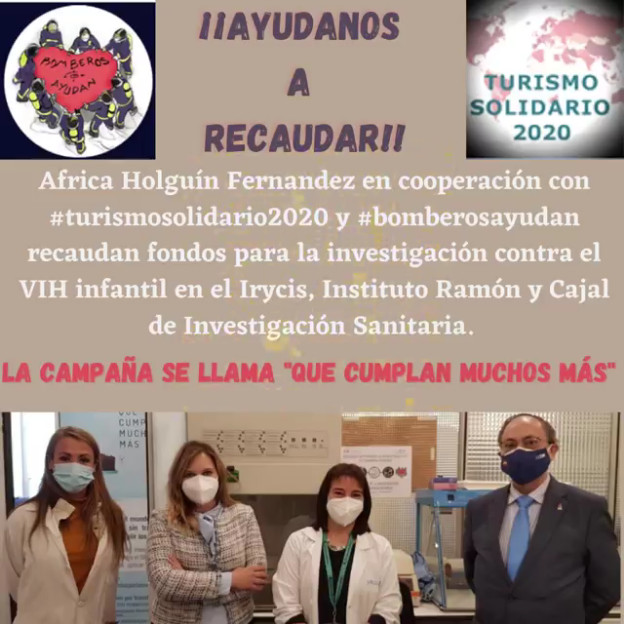
SOLIDARITY TOURISM SUPPORTS OUR SOLIDARITY CAMPAIGN "MANY MORE YEARS TO COME"
Africa Holguín - responsible for the fundraising campaign for research against pediatric HIV: - The project is called 'Many More Years To Come' This research is carried out at the Molecular Epidemiology Laboratory of #HIV at the Ramón y Cajal Institute for Health Research (IRYCIS) of the Ramón y Cajal University Hospital in Madrid.
In collaboration with #bomberosayudan and #solidaritytourism2020, África Holguín Fernández is raising funds for the sponsorship of researchers and for some of their ongoing research projects in HIV and currently in #COVID19.
Read full article here
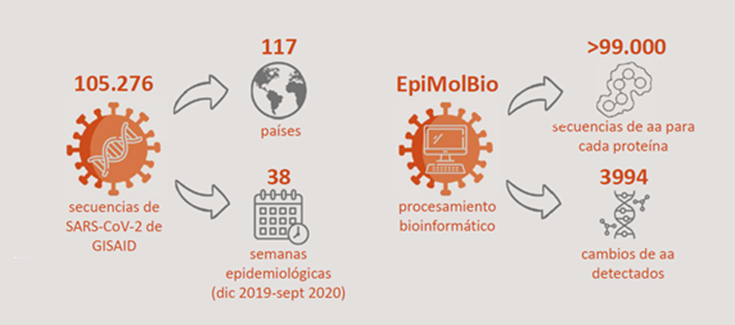
They carry out the first study on conservation and emerging mutations of the 4 structural proteins of SARS-CoV-2 with data from more than 100,000 patients
CIBER | Tuesday, February 9, 2021.
The team led by CIBERESP researcher África Holguín at the Ramón y Cajal Hospital-IRYCIS in Madrid, integrated into the group led by Juan Carlos Galán, has conducted a study on the genetic diversity of SARS-CoV-2, crucial for understanding its evolution and assessing its impact on COVID-19 diagnosis, vaccines, and therapies. For this purpose, data from more than 100,000 isolates of SARS-CoV-2 from 117 countries were analyzed. The work has been published in the journal Viruses and analyzes the degree of amino acid conservation and temporal evolution globally and regionally per epidemiological week at each residue of the four structural proteins of SARS-CoV-2: spike, membrane, envelope, and nucleocapsid. The analysis was carried out using the bioinformatics tool EpiMolBio, developed by the research group itself.
Read full article here
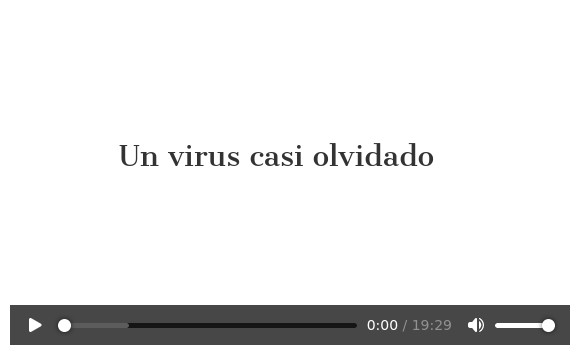
An almost forgotten virus
La voz de Charo, January 29, 2021.
It is the HIV virus, which still causes thousands of deaths worldwide. In this interview, África Holguín Fernández, PhD in Biology and expert in Molecular Epidemiology of HIV, tells us, among other things, that "many people, aged 15 to 24, become infected with HIV by not using protection in sexual relations". She also talks about her collaboration with "Bomberos Ayudan" and the importance of donations to continue with the study and advancement of Science. www.quecumplanmuchosmas.com and account for donations: La Caixa: ES19 2100 5731 79 0200 176319 / holder: Fundación para la Investigación Biomédica del Hospital Universitario Ramón y Cajal / concept: donation for HIV/AIDS research in children
Read full article here
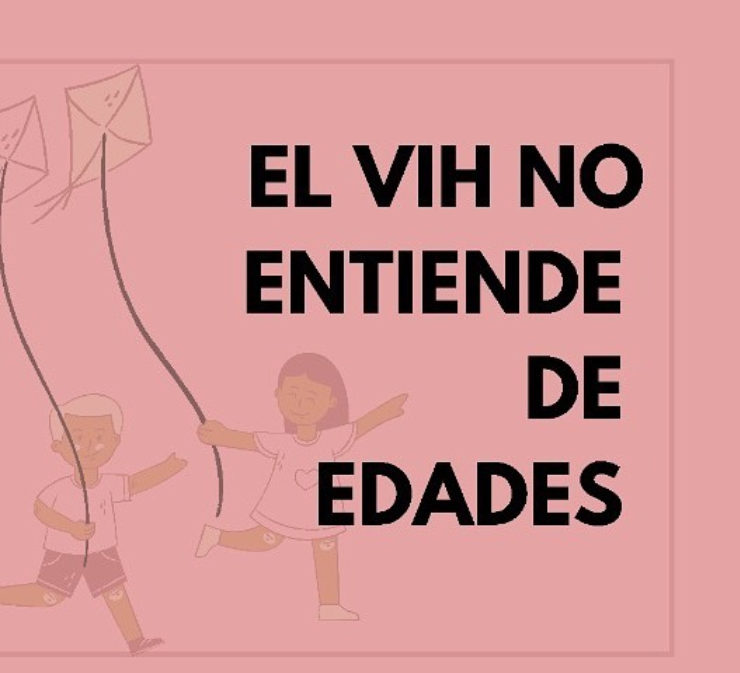
DISSEMINATION ABOUT HIV ON WORLD AIDS DAY 2020 - Part 1
Bioaprender, December 6, 2020.
HIV is transmitted through the exchange of bodily fluids from an infected person, such as blood, semen, or vaginal secretions. But it can also be transmitted from mother to child during pregnancy, childbirth, or breastfeeding. Currently, there are over 1.7 million children living with HIV worldwide. Although the virus is not cured, appropriate antiretroviral treatment (ART) in pregnant women with the infection helps keep the virus in the blood at a low level (viral load) and reduces transmission.
Read full article here
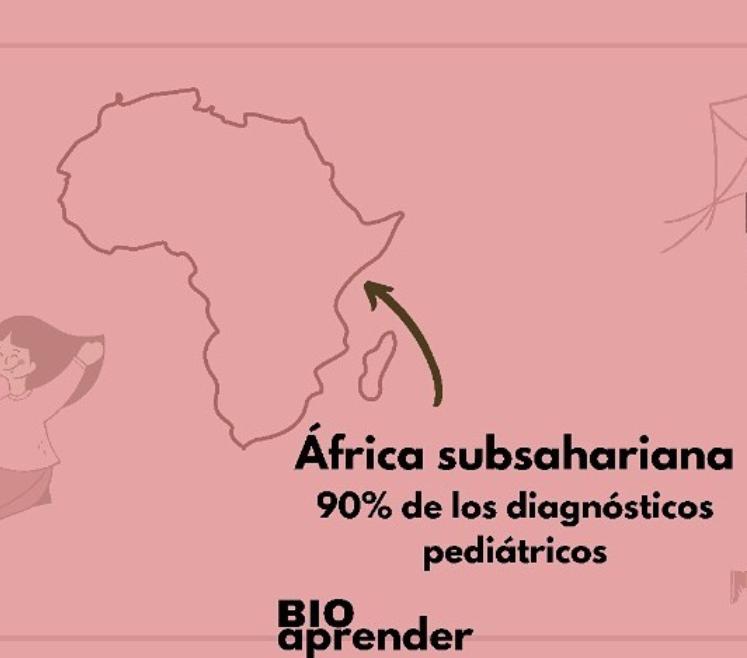
DISSEMINATION ABOUT HIV ON WORLD AIDS DAY 2020 - Part 2: Early Infant Diagnosis
Bioaprender, December 6, 2020.
In children born to mothers with HIV, early diagnosis is essential to start treatment as soon as possible and thus reduce mortality and morbidity associated with the infection. HIV diagnosis in children over 18 months old is performed using serological techniques that detect antibodies against the virus, similar to adults. However, in children under 18 months old, molecular tests should be used to detect the virus directly. Why? Because children may retain antibodies from their HIV-positive mothers in their blood for up to about 18 months, which could lead to false positive diagnoses if serological techniques were used.
Read full article here
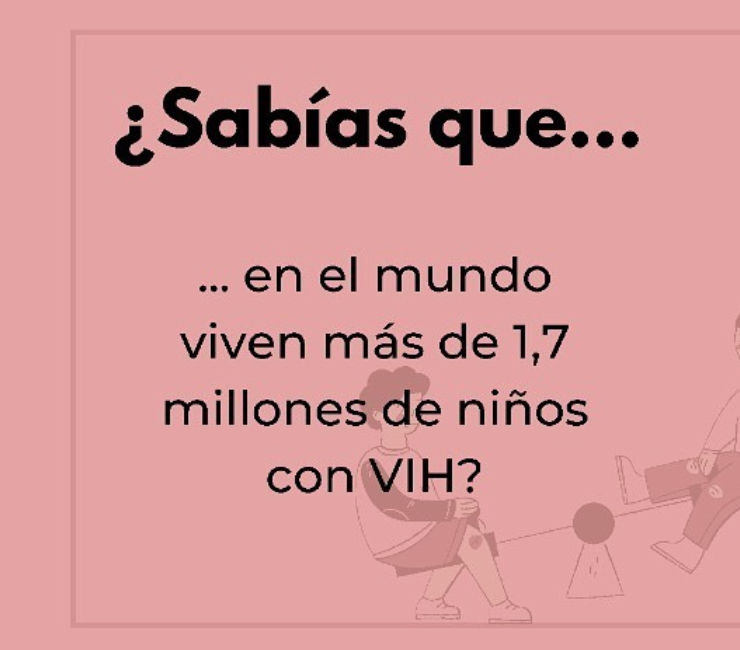
DISSEMINATION ABOUT HIV ON WORLD AIDS DAY 2020 - Part 3: Antiretroviral Treatment in Children
Bioaprender, December 6, 2020.
Without treatment, half of the children born with HIV will die before they turn 2 years old. Among the objectives of antiretroviral treatment (ART) are achieving suppressed viral load, minimizing toxicity and resistance generation, reducing morbidity and mortality associated with the infection, and improving the quality of life of infected individuals. The earlier the ART is initiated, the better the infection control will be.
Read full article here
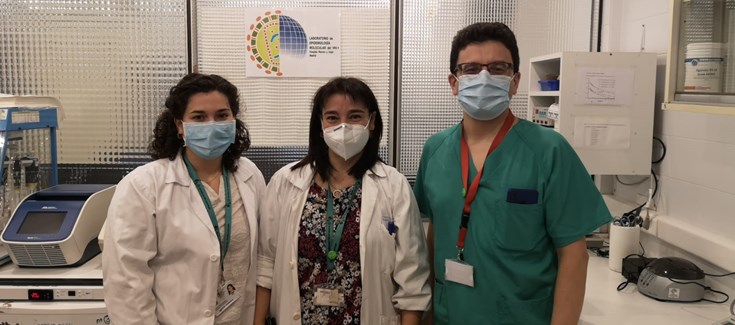
DISSEMINATION OF OUR WORK IDENTIFYING THE HIV VARIANTS CIRCULATING IN THE DEMOCRATIC REPUBLIC OF CONGO
CIBER | Monday, November 30, 2020
Scientific Reports has published the most comprehensive study to date on the variants of HIV-1 circulating among children, adolescents, and adults in Kinshasa, Democratic Republic of Congo, an area considered the origin of the AIDS pandemic. The study was led by researcher África Holguín from the Ramón y Cajal Hospital in Madrid and CIBERESP. Tomorrow, December 1st, marks World AIDS Day.
Read full article here
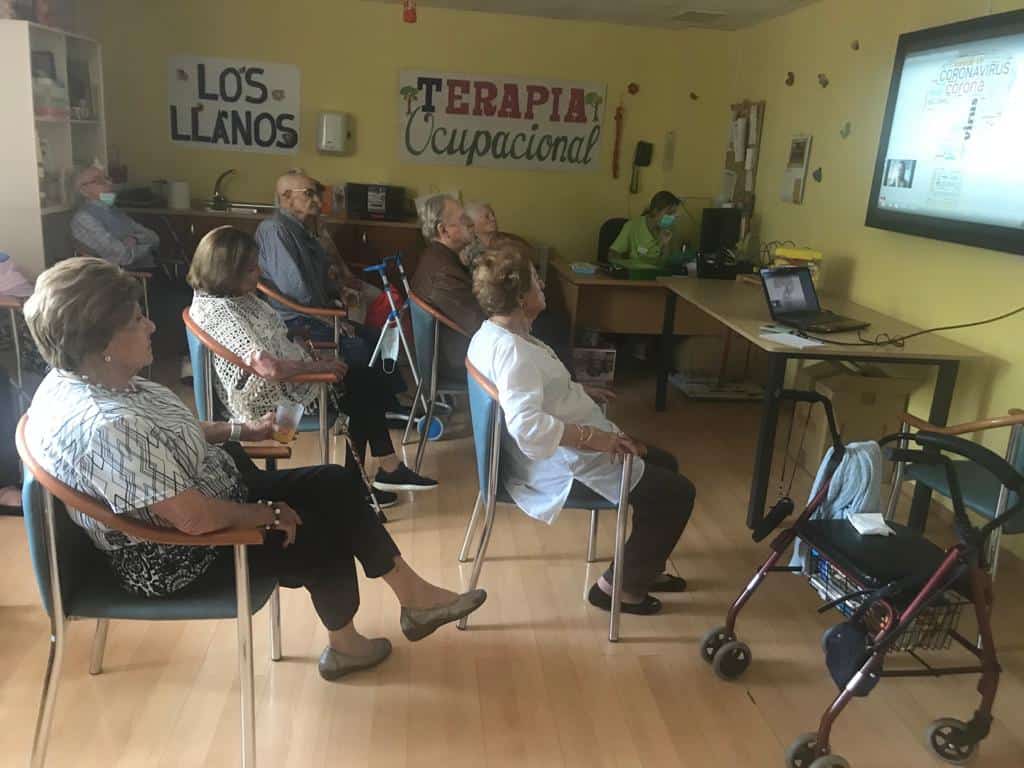
SCIENTIFIC DISSEMINATION ON COVID IN LOS LLANOS RESIDENCE, MADRID
Los Llanos Vital | June 4, 2020
This week at Los Llanos Vital, we conducted a very interesting activity with our residents. We believed it was necessary for them to have access to quality information about COVID-19 from reliable sources. Therefore, we organized a conference on COVID-19 at the center where, in two sessions, they watched a lecture by Dr. África Holguín and were able to discuss and ask questions about this disease to our professionals.
Read full article here
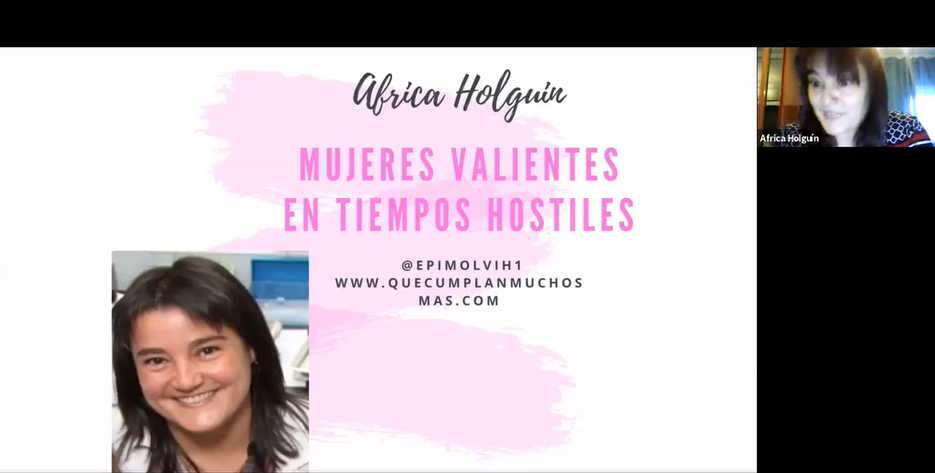
PARTICIPATION OF AFRICA HOLGUÍN IN THE 3RD ONLINE EDITION OF "BRAVE WOMEN IN HOSTILE TIMES"
Beatriz Álvarez | May 28, 2020
Those who know África will know that not even a pandemic can stop her. So, in addition to her usual work during this quarantine, she participated in the 3rd online edition of "Brave Women in Hostile Times," organized by Beatriz Álvarez. In this event, six brave women who are role models in their sector shared their life stories, their efforts to develop their professional careers, how to face our current crisis, and much more...
Read full article here

DIVULGACIÓN DE NUESTRO TRABAJO EN MARCADORES INMUNES EN PACIENTES VIH
Journals | 15 de mayo de 2020
Leer noticia completa aquí
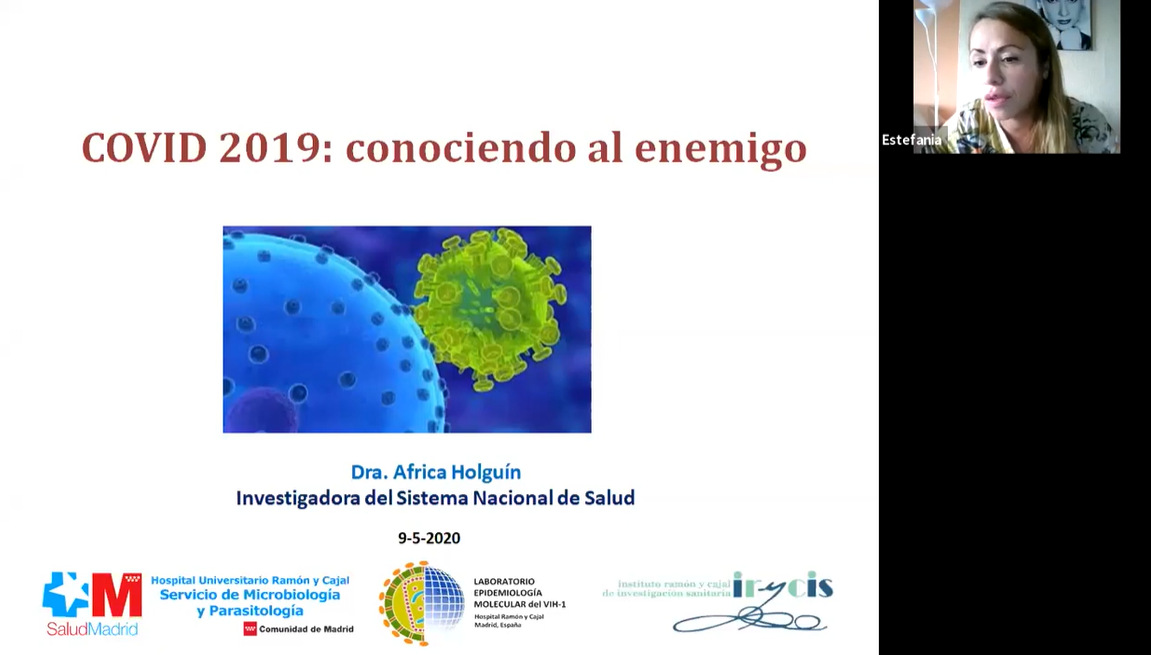
COVID-19 INFORMATIONAL CONFERENCE: GETTING TO KNOW THE ENEMY TO THE NATIONAL ASSOCIATION OF HOTEL GOVERNESSES AND OTHER ORGANIZATIONS
Loly Gómez | May 10, 2020
Read full article here
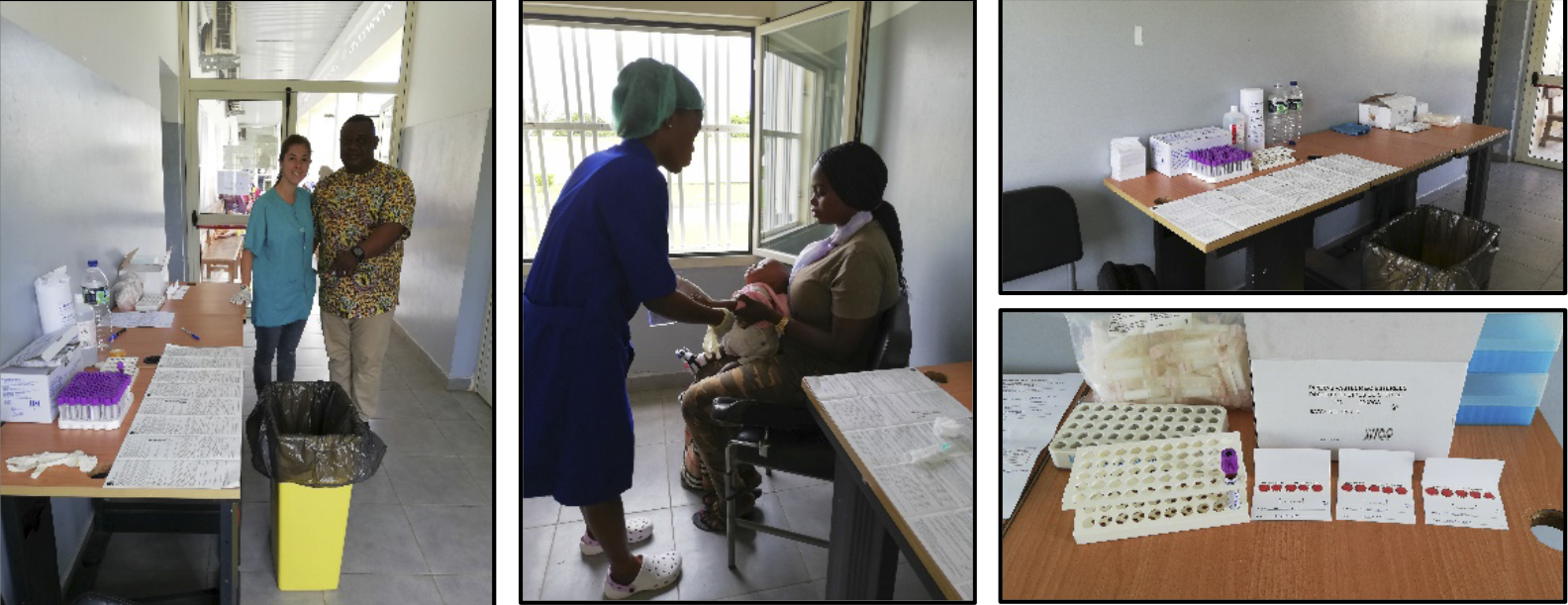
SPANISH RESEARCHERS STUDY HIV ANTIRETROVIRAL RESISTANCE IN EQUATORIAL GUINEA
irycis, CIBER | May 6, 2020
The HIV Molecular Epidemiology Laboratory of the Microbiology Service of IRYCIS, coordinated by Dr. África Holguín, with the support of the hospital's Ethics Committee, leads the experimental part of a surveillance study on antiretroviral resistance and HIV variants aimed at determining the rates of resistant viral variants circulating in children and adults in Bata, Equatorial Guinea, and their resistance to which drugs.
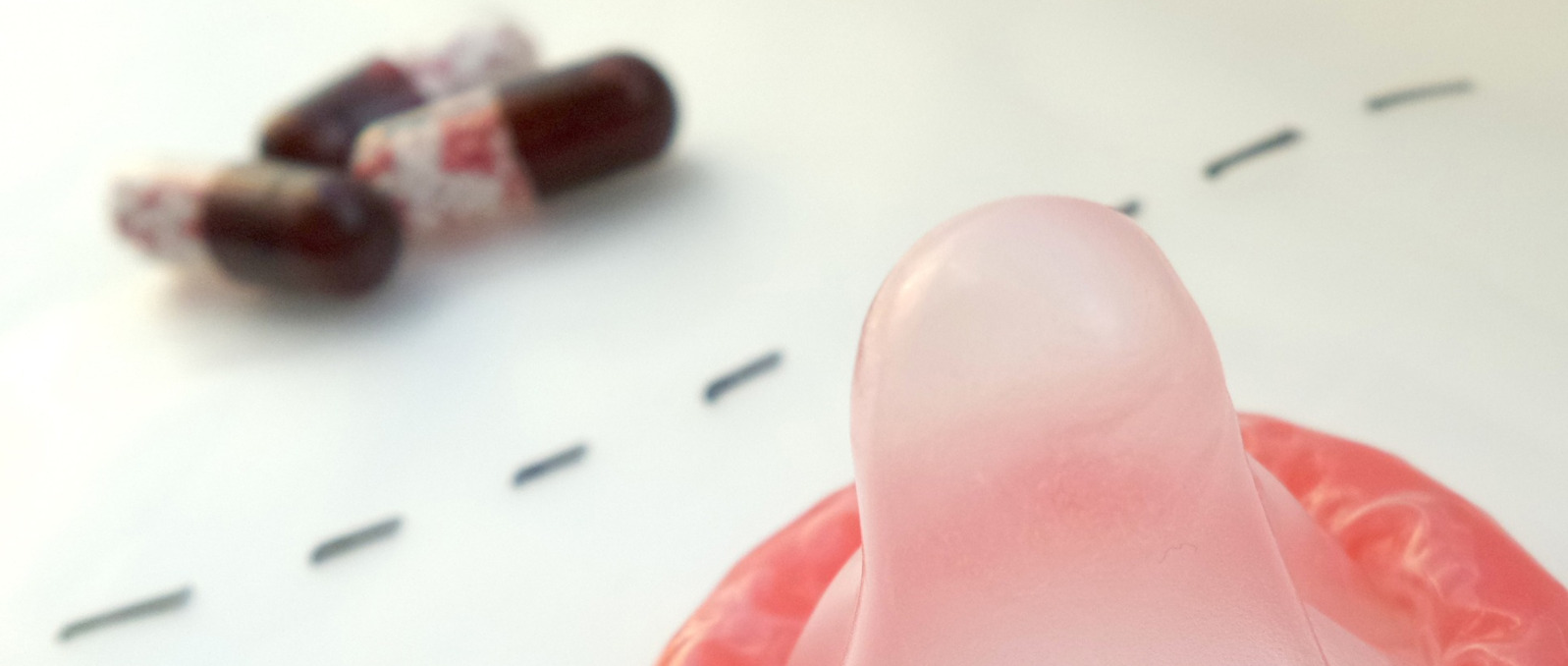
Dissemination on HIV on World AIDS Day 2019 providing information about the virus in Africa
maldita.es. December 1, 2019.
For over 30 years, every December 1st has been observed as World AIDS Day. Over these three decades, significant progress has been made in the fight against this disease. Today, living with HIV (human immunodeficiency virus) is not incompatible with a long and healthy life. However, it cannot be forgotten that HIV has been the cause of 32 million deaths worldwide. Currently, according to UNAIDS (Joint United Nations Programme on HIV/AIDS) data, there are around 38 million people living with the virus. This number continues to rise, although at a slower pace each year: last year there were over one and a half million new cases worldwide.
Read full article here
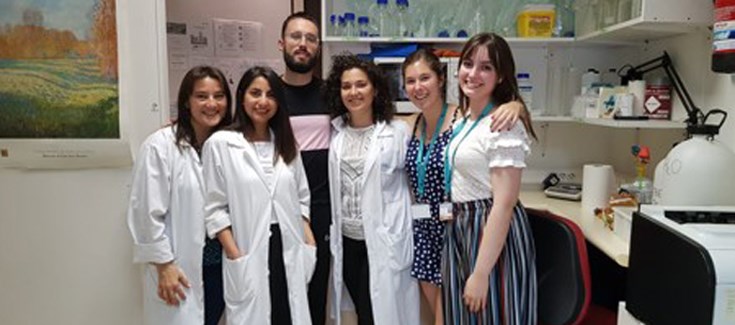
Dissemination of Our Work on Adolescents with HIV Transferred from Pediatric Units to Adult Units in Hospitals in Madrid
ciberesp and redris.es | December 1, 2019.
Researchers from CIBERESP at the Molecular Epidemiology of HIV Laboratory of the Ramón y Cajal Institute for Health Research (IRYCIS) in the Microbiology Service of the Ramón y Cajal Hospital in Madrid have published a study comparing drug resistance mutations and HIV variants in young people infected with HIV and transferred from pediatric care units to adult units in 17 public hospitals in Madrid from 1997 to 2017, with those of pediatric patients who were not transferred. The results have been recently published in Scientific Reports.
Read full article on ciberesp here
Read full article on redris here
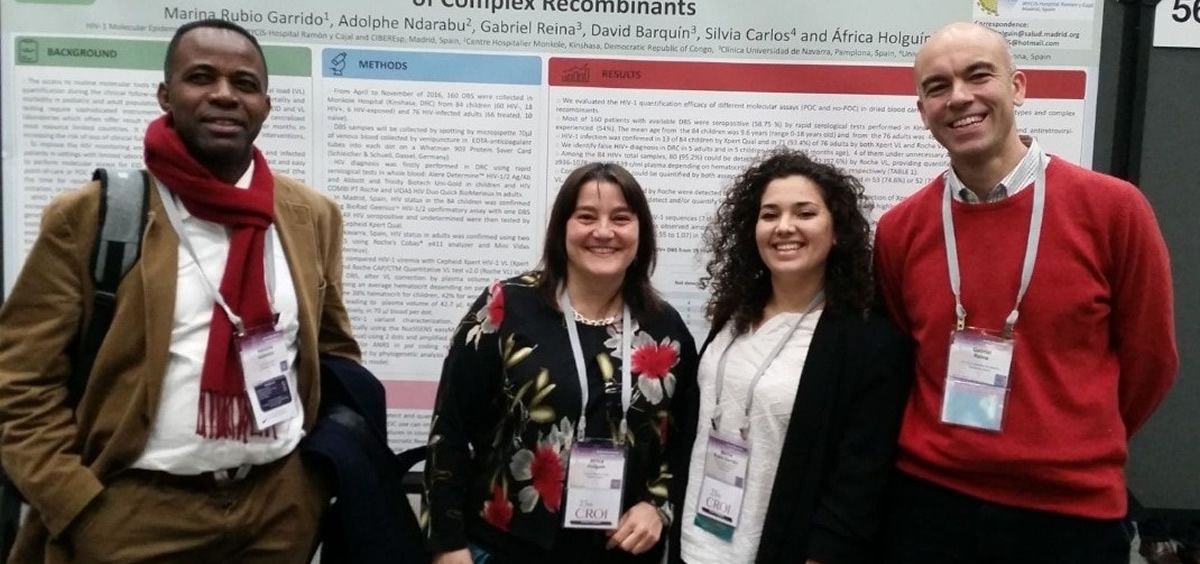
New Milestone in Rapid HIV Diagnosis in Africa
CIBERESP. June 4, 2019.
Seeking new HIV diagnostic techniques in countries with limited infrastructure and where many virus variants circulate is the goal of researchers at the CIBER of Epidemiology and Public Health (CIBERESP), who have evaluated a new molecular technology for detecting and quantifying complex virus recombinants.
Dr. África Holguín, a researcher at CIBERESP at the Ramón y Cajal University Hospital, has led an international study recently published in Scientific Reports, which also involved the University of Navarra Clinic. The study evaluated infected dried blood spots (DBS) impregnated with recombinant variants of HIV and a new molecular technique in the Democratic Republic of the Congo.
The study has, for the first time, assessed the utility of a new commercial Point of Care (POC) molecular technique for diagnosing and quantifying HIV using only a few drops of dried blood on a special filter paper (DBS) infected with complex virus recombinants circulating in Kinshasa, capital of the Democratic Republic of the Congo.
According to África Holguín, "this POC molecular technique is much simpler and faster than conventional molecular techniques, making it ideal for use in countries with limited infrastructure." Additionally, it is performed with a much smaller and simpler portable device than the techniques normally used in diagnostic laboratories, allowing the test to be conducted at the same sites where patients' clinical visits or sample collection occur, with results available in less than two hours.
Read full article here
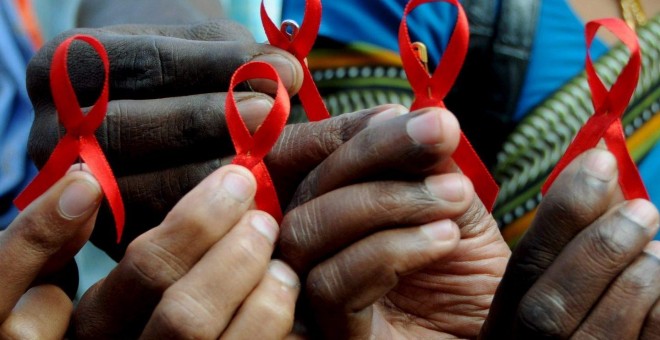
Dissemination of Our Work Evaluating New Molecular Techniques in Samples from the Democratic Republic of the Congo
www.publico.es. June 4, 2019.
A new molecular technique, much simpler than conventional ones, will allow for rapid HIV diagnosis in Africa and could become a viable alternative in countries with limited hospital resources and where many virus variants circulate. The technique, developed in the Democratic Republic of the Congo, has been evaluated by an international team of scientists led by researchers from the Center for Biomedical Research in Epidemiology and Public Health (CIBERESP) of the Carlos III Health Institute, this organization has reported.
Read full article here
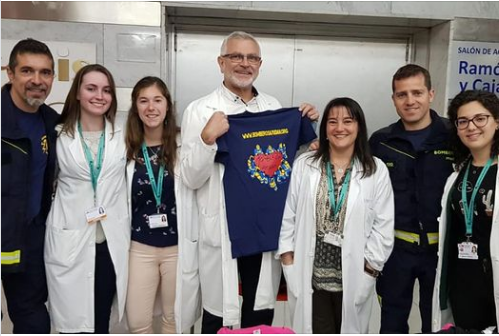
Solidarity Market at Ramón y Cajal Hospital and Signing of 3rd Agreement with Firefighters Aid for Pediatric HIV
April 23, 2019.
Today, we are at Ramón y Cajal University Hospital signing the renewal of the agreement we have with the Laboratory of Molecular Epidemiology of HIV1 Epimol VIH1 as part of our #PediatricHIVResearchProject.
Read full article here

An International Study Analyzes HIV Virus Variants Worldwide and Their Evolution
February 13, 2019. Researcher África Holguín, from the CIBERESP group led by Juan Carlos Galán at IRYCIS - Ramón y Cajal Hospital (Madrid), has collaborated in an international study that conducted a systematic review and global survey on the distribution and subtypes of the HIV virus. Molecular epidemiological surveillance of this virus is vital for designing or implementing vaccines as there is a great global and regional diversity of HIV and it is constantly evolving.
The study, whose results have been published in The Lancet Infectious Diseases, aimed to estimate the regional and global distribution of HIV-1 subtypes and recombinants during 1990-2015. This involved a review of publications on HIV-1 subtype studies, along with other prevalence studies from this period and a global survey.
Dr. Holguín's group contributed to the study by providing data on children and adults infected with the virus with follow-up in Spain. Read full article here
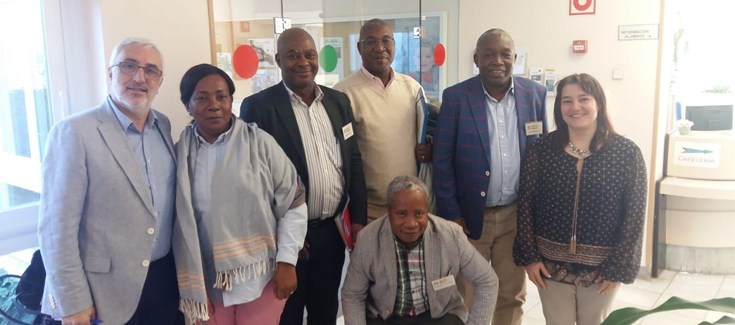
Madrid Hosts the 1st Conference on National Endemic Disease Control Programs in Equatorial Guinea
January 21, 2019. The National Center for Tropical Medicine and the National School of Public Health in Madrid hosted the first Conference on National Endemic Disease Control Programs in Equatorial Guinea last December. The event brought together officials from Equatorial Guinea's National Programs for the control of endemic diseases, Spanish technicians from the ISCIII who collaborate in their development and implementation, and a group of scientists working with these pathogens in Madrid.
Organized jointly by the ISCIII and the Spanish Foundation for International Cooperation, Health, and Social Policy (FCSAI), the conference falls within a framework of bilateral health cooperation in this African country. During the meeting, the situation and analysis of major epidemics in Equatorial Guinea were presented, including HIV, tuberculosis, malaria, and Neglected Tropical Diseases, as well as joint working sessions to prepare action plans for the coming year in the African country.
Read full article here

80's Concert and Musical in Support of Pediatric HIV Research
September 28, 2018. The team led by África Holguín, researcher at CIBERESP in IRYCIS- Ramón y Cajal Hospital in Madrid (PI: Fernando Baquero), is organizing two solidarity events against Pediatric HIV in the coming months from the Molecular Epidemiology Laboratory of HIV (EpiMolVIH).
On October 5th, a Solidarity Concert with 80's Music will take place in Madrid, at the SkyNight of the Puerta de América Hotel (13th floor), featuring DJs and a concert by SANANDA with versions of songs from that era. The entrance fee of €20 includes €10 entirely for the project, 1 drink, or 2 soft drinks (soda, beer, or wine). Tickets can be purchased on ticketea or on the day of the event at the entrance of the SkyNight.
On the other hand, on November 10th at 7 pm, the municipal theater of Tres Cantos (Madrid) will host a Solidarity Musical Grease, with the support of the Youth, Cooperation for Development, and Culture Departments of the City Council of this locality. The ticket price goes entirely to the project and can be purchased at the following link or at the box office on the same day.
Read full article here
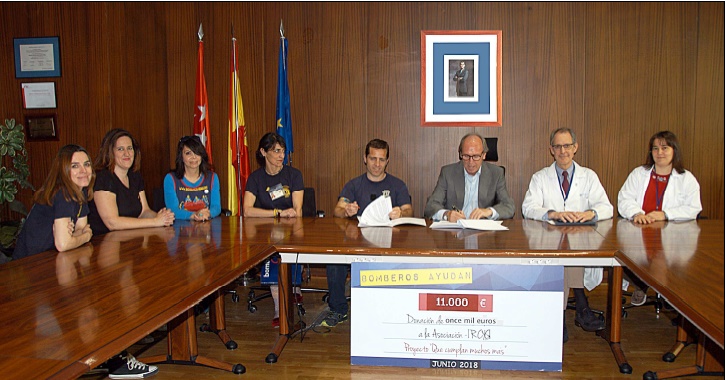
The hospital renews collaboration agreement with the Firefighters Aid Association
June 14, 2018. The hospital has just renewed its collaboration agreement through the Molecular Epidemiology Laboratory of HIV of the Microbiology Service and IRYCIS coordinated by Dr. África Holguín with the Firefighters Aid Association. During the same event, the latest check worth 11,000 euros was presented, which has been raised during this year, making a total of 54,000 euros already delivered. The renewal was formalized through the signature of the hospital's managing director Juan José Equiza, the coordinator of the Firefighters Aid Association, Hugo Martínez, the director of the Research Foundation, José Ignacio Flores, the head of the Microbiology service, Dr. Rafael Cantón, and Dr. África Holguín.
Objective: Fundraising for HIV/AIDS study
To celebrate this event, a solidarity event was organized in the lobby of the hospital's main entrance where different products were put up for sale with the support of famous personalities. The objective of this day was to raise funds aimed at the development and dissemination of current and future research on pediatric HIV/AIDS conducted by the hospital's Molecular Epidemiology Laboratory.
Free trees and famous personalities
As part of the awareness campaigns, firefighters visited the Pediatric Unit and outpatient clinics, where they carried out various activities with hospitalized children and those attending consultations. They took photographs dressed in firefighter gear and with a huge fire truck photo booth. Subsequently, in the main lobby of the hospital, a team of firefighters and researchers from the research group carried out merchandising activities - selling T-shirts, sweatshirts, magnets, stickers, pens, backpacks, etc. - the proceeds of which will go towards financing the projects of the pediatric HIV/AIDS research group.
Additionally, throughout the day, a large inflatable firefighter was installed in the outpatient clinic building to remind people of the important work done by the association. Famous personalities like Begoña Maestre have been supporting this event.
The president and director of the Plantamos Árboles Project, Idelfonso García, collaborated altruistically in this event by providing numerous trees that were given as gifts to the attendees.
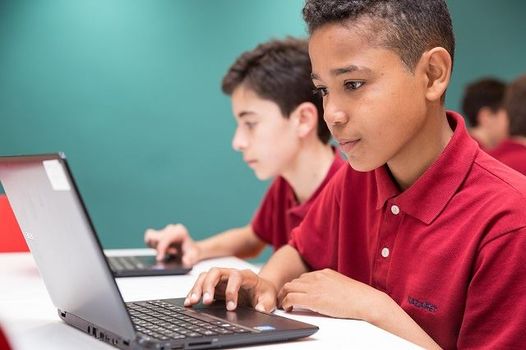
Informative Talk on HIV at Nazaret School (San Blas)
June 4, 2018
On May 29th, África Holguín gave a talk at Nazaret School in San Blas so that 3rd ESO students could learn more about HIV. What is it? How is it transmitted? What is the current situation of the infection? How can we diagnose it?... and much more! It turned out to be a great success among the students who were very attentive! Education and prevention are fundamental pillars to end the epidemic. Furthermore, we believe that science communication in the country is very important and should reach all of society. With small actions like these, from the laboratory, we want to contribute to bringing science closer to everyone.
Read full article here
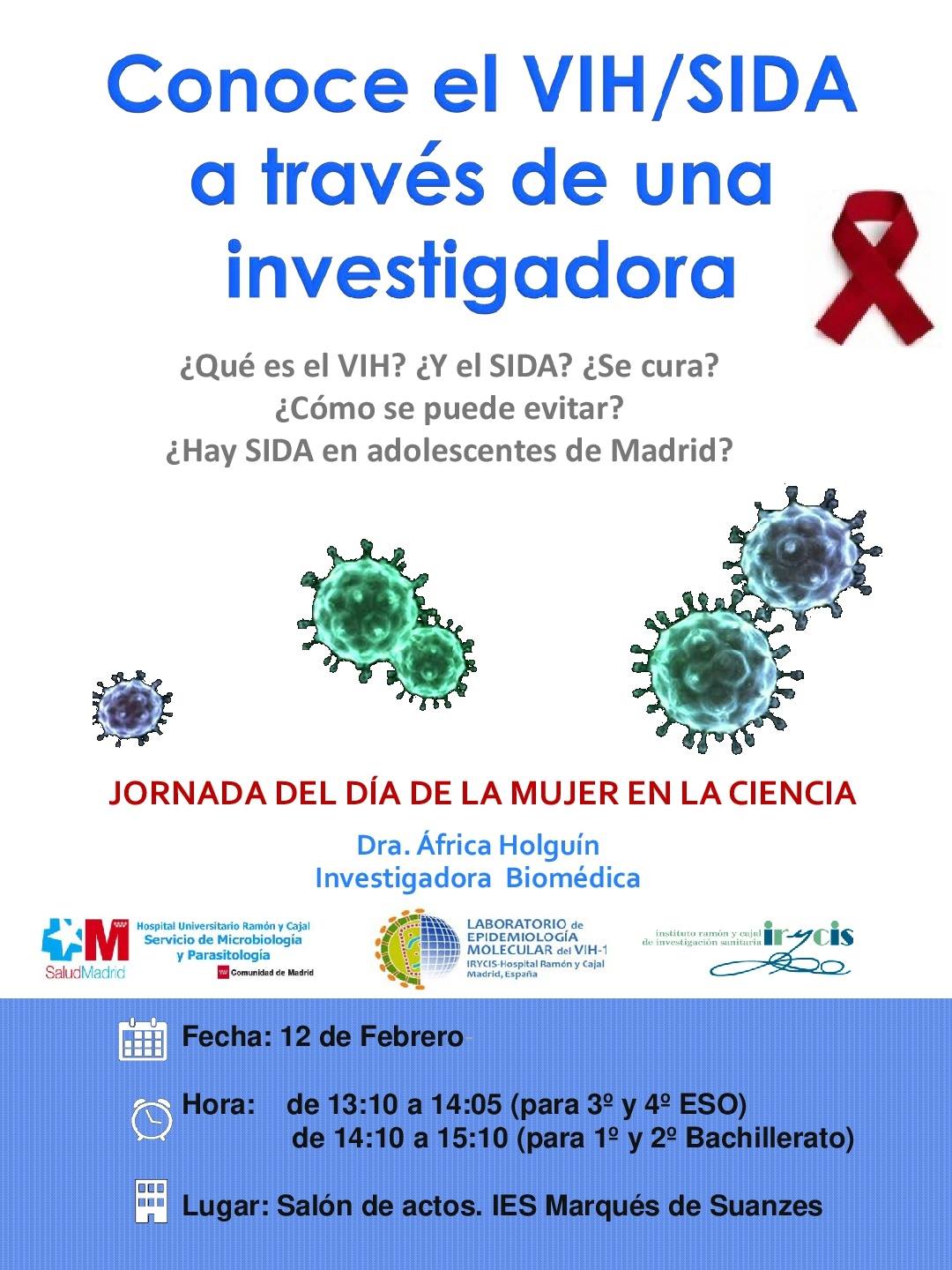
VIH Talk for Children on Women Researcher Day at Marqués de Suanzes High School
February 13, 2018
Yesterday, Monday, February 12th, at 13:10, África Holguín gave two informative talks about the human immunodeficiency virus (HIV) infection, the agent of AIDS, at the Marqués de Suanzes High School. The talk aimed to teach didactically the students of the last years of secondary school and high school what HIV is, what AIDS consists of, how it affects adolescents, how it is diagnosed and treated, as well as what they can do to prevent it and not get infected. She ended by briefly discussing several research projects to better understand pediatric HIV in Spain and in countries with limited resources, as well as to improve the diagnosis and clinical monitoring of infected children and adolescents. Approximately 300 students attended, a great success! From the laboratory, we hope they have learned a lot about this infection and that with this knowledge they can make good decisions in the future.
Read full article here
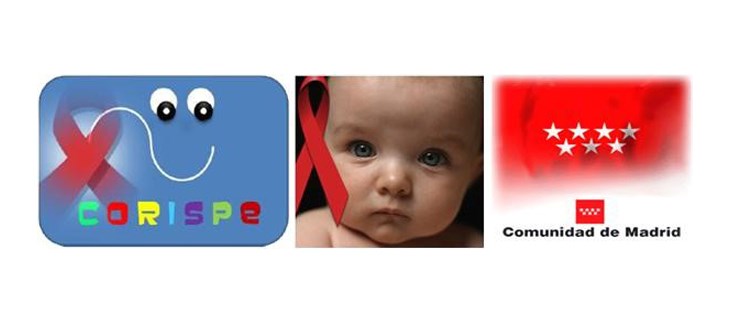
Advances in Pediatric HIV Knowledge
December 14, 2017. África Holguín, researcher at the Ramón y Cajal Institute for Health Research -IRYCIS-, and CIBERESP (Principal Investigator: Fernando Baquero), has led several research projects with her team that combine the molecular study of the virus and clinical aspects of HIV infection in pediatric populations infected in our autonomous community. The results have been published this year in high-impact international journals, such as Pediatric Infectious Diseases Journal, Genome Biology and Evolution, and Plos One.
Dr. Holguín and her group, together with pediatricians from the Cohort of Children and Adolescents Infected with HIV in Madrid, which is part of the national pediatric cohort (CoRISpe), have conducted comprehensive research documenting how resistance to different families of antiretroviral drugs and HIV variants has evolved over more than 20 years in the cohort of children and adolescents with HIV in Madrid. They have also analyzed the virological and immunological parameters evolution in infected children after treatment with one of the most commonly used antiretroviral drugs in pediatric HIV infection. Finally, the group has published pioneering data on how certain clinical parameters affect the molecular evolution of this virus in children.
The published results update studies on antiretroviral resistance and molecular epidemiology of HIV-1 in the pediatric population infected in Spain, making it one of the 5 best-studied pediatric HIV cohorts at the clinical and virological levels worldwide and the second in Europe. The results will allow for a better understanding of the dynamics of viral resistances and virus variants in Spain, as well as the evolution of HIV in children. Most of them have been part of the doctoral thesis of Dr. Patricia Rojas, currently working in the United Kingdom.
Read full article here

INTERVIEW WITH AFRICA HOLGUÍN ON RADIO 108.0 FM PROGRAM "TALENTAMUNDI"
November 13, 2017
Read the full article here
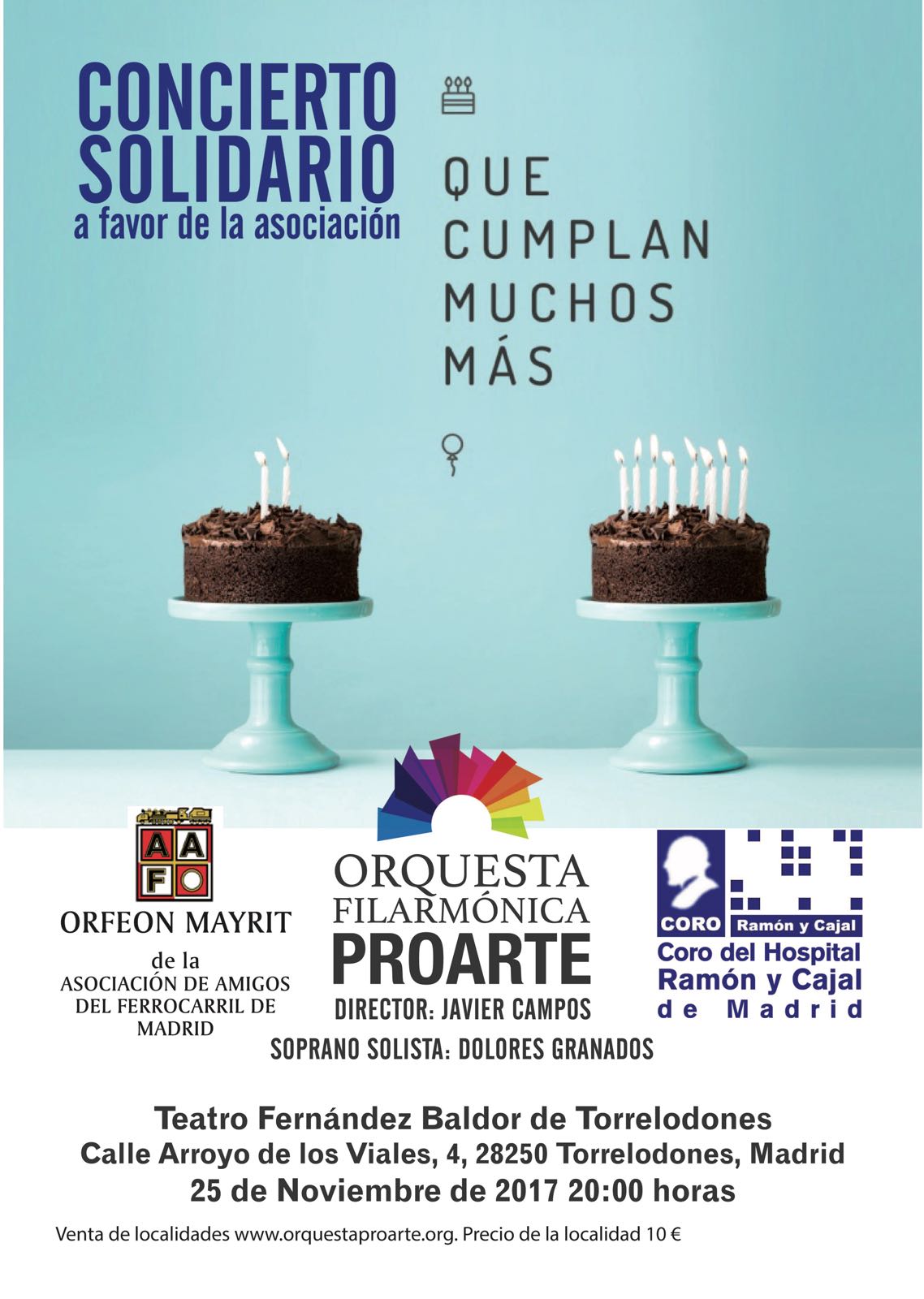
Concert by ProArte Philharmonic Orchestra
On November 25, we will have a solidarity concert to benefit our project "Que cumplan muchos más" (May they have many more).
Hurry to get your tickets!
Concert by ProArte Philharmonic Orchestra, Choir of the Madrid Railway Friends Association, and Choir of Ramón y Cajal Hospital.
Location: Fernández-Baldor Theater in Torrelodones
Date: November 25, 2017
Benefiting the "Que cumplan muchos más" project: which investigates the HIV virus in children in Spain and in countries with limited resources.
Conductor: Javier Campos
Soprano: Dolores Granados
Tickets: €10
Reserve your tickets here
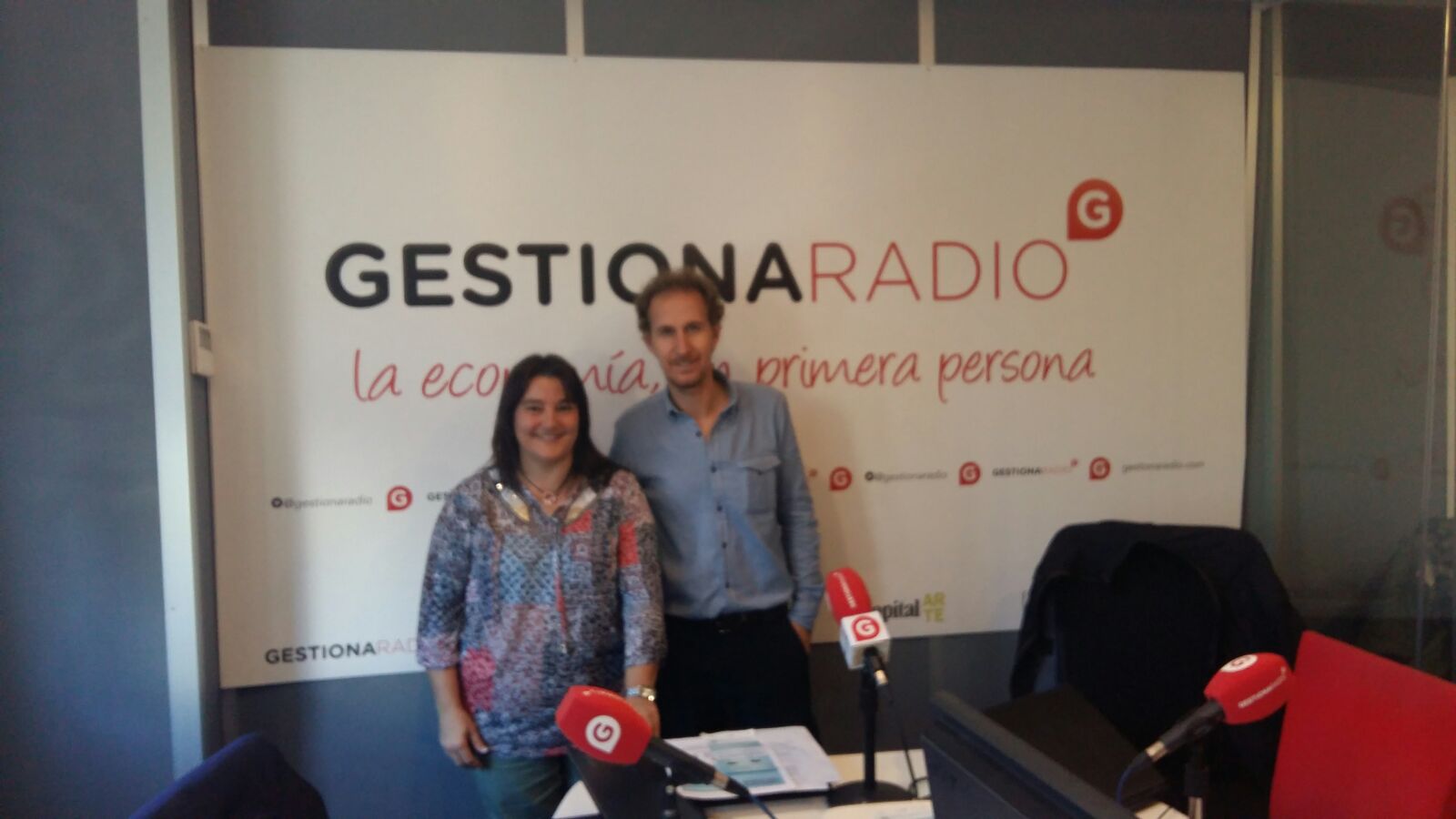
África Holguín on the radio!
Last Friday, November 10, 2017, África Holguín was interviewed on the program "Talenta Mundi" on Gestiona Radio. They talked about a lot of things, including the issues of HIV in low-resource countries, our research projects through which we try to contribute to improving this situation. Also, they discussed all the events and collaborators that help us carry out all of this and obtain funding. We had a great morning with these great professionals!
Click here to listen!
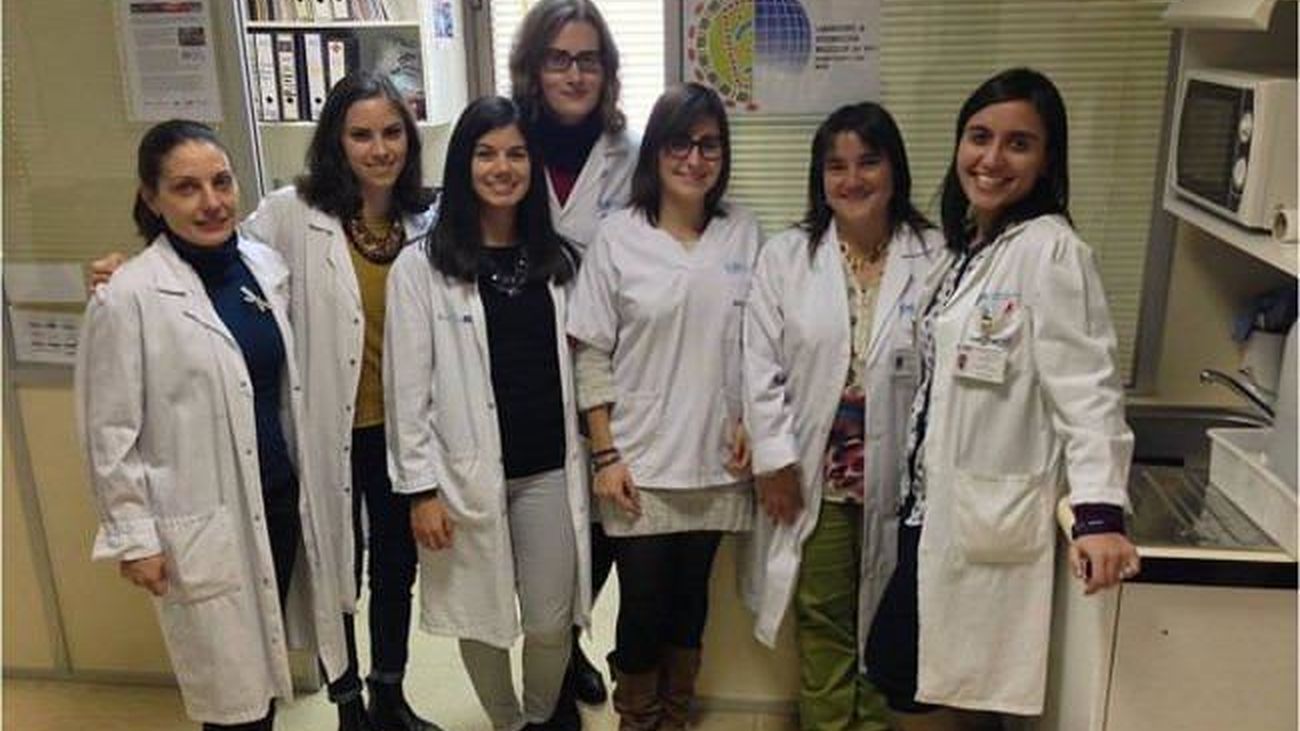
Interview with África Holguin on Telemadrid, HIV researcher in children
December 28, 2016. Today we want to learn about the work being done in the laboratory led by África Holguin at the Ramón y Cajal Hospital. They are investigating how to diagnose AIDS early in children worldwide.
Every day, a thousand children are born with the HIV virus on the planet. There have been many advances to prevent them from dying before the age of two. These research projects require funding. At the Ramón y Cajal Hospital, they tell us how we can help.
Click here to listen!
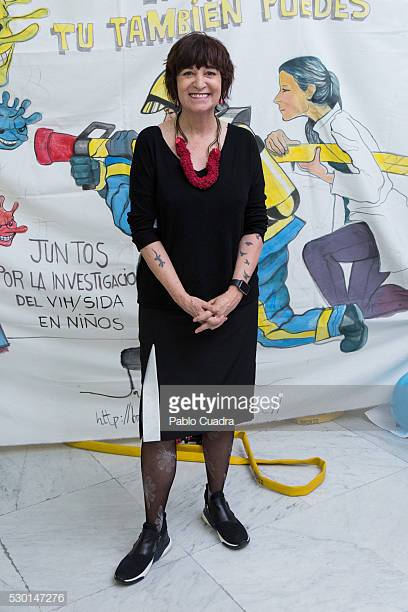
Rosa Montero supports our HIV research
Your modest battlefield
El País Semana (05/29/2016), by Rosa Montero
This vast, overcrowded, and chaotic planet we live on is full of pressing problems. But, on the other hand, there is also an incalculable number of good people, individuals who dedicate their lives to trying to improve a small piece of global suffering. Because that is the only way to impact history and the world: by assuming specific objectives, choosing your modest battlefield.
That's what Dr. África Holguín does, for example, at the Ramón y Cajal Hospital in Madrid. África and her seven collaborators, almost all very young, make up the Molecular Epidemiology Laboratory of HIV at the Microbiology Service of the Ramón y Cajal Institute of Health Research… read more

Bomberos Help
The association "Bomberos Ayudan" releases its second edition of the solidarity calendar. The 2016 calendar is now available, raising funds for our project and many others they collaborate with.

Spanish researchers launch a crowdfunding campaign to design a method for detecting HIV in newborns
Europa Press. July 1, 2015.
Researchers from the Molecular Epidemiology Laboratory of HIV at the Ramón y Cajal University Hospital in Madrid have launched a crowdfunding campaign to develop a "reliable and low-cost" method for detecting HIV in newborns in low-resource countries. The goal is to raise a total of 25,000 euros through private donations within 90 days, and since the initiative was launched on October 9th, they have already raised...
Read full article (c) 2020 Europa Press.
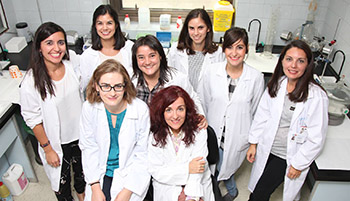
THOUSANDS OF NEWBORNS SAFE FROM HIV
http://infoactualidad2.ccinf.es, January 20, 2015
HIV claims over a thousand infections in children annually, who, if untreated, die before the age of two. This is what researchers from the Molecular Epidemiology Laboratory at the Ramón y Cajal Hospital are trying to prevent. Thanks to a crowdfunding project, they have attempted to raise funds to finance an early detection method for the disease in children under 18 months that is inexpensive, easy, and reliable.
The Human Immunodeficiency Virus or HIV, the cause of AIDS, is one of the deadliest viruses in resource-poor countries and kills nearly 5,000 people a day worldwide. Currently, according to WHO data, there are approximately 35 million infected individuals, the majority of whom are concentrated in sub-Saharan African countries, where one in four people contracts the virus. In the case of children, they account for 3 of those 35 million.
AIDS, as defined by the Ministry of Health, "is an advanced stage of infection caused by the Human Immunodeficiency Virus (HIV), which progressively destroys the immune system." During the initial phase, our immune system responds by reducing the amount of virus in the blood, although it does not prevent it from remaining present and continuing to affect organs.
Read full article here

A Method to Detect HIV in Children Under 18 Months with Two Drops of Blood Needs Funding
Constantes y vitales. ATRESMEDIA COMMITMENT. December 5, 2014.
Every day, more than 1,000 children are born with HIV, the virus that causes AIDS, a disease affecting 3 million children. With these figures in mind, Dr. África Holguín and her team from a laboratory affiliated with the Ramón y Cajal Hospital are working on the development of a molecular method for the early diagnosis of HIV in children under 18 months, using just two drops of blood. Public funding does not provide resources for projects like theirs, which is why they are seeking funds.
"An early diagnosis determining the virus infection within the first few weeks of life would give millions of children the possibility to receive antiretroviral treatment as soon as possible, increasing their survival. In fact, without treatment, one-third of these children will die before their first year, and half of them will die before their second birthday."
Read full article here

Entre Probetas
Entre Probetas RNE. November 19, 2014.
On November 12, 2014, history was made with news that will be considered -time will tell- as a milestone of the century: successfully landing a module named Philae on a comet -like a bullet hitting an apple from thousands of kilometers away- until it came to rest on it. Since October 9, they have been carrying out a crowdfunding project -or micropatronage- practically open to the public, consisting of soliciting the participation of society to develop an early detection method for HIV in children under 18 months using two drops of blood. We will interview África Holguin, director of the Laboratory of Molecular Epidemiology of HIV-1 at the Ramón y Cajal University Hospital in Madrid.
Listen here

LOS MATICES DEL CROWDFUNDING, POR ELVIRA LINDO
Cadenaser. November 11, 2014.
The writer Elvira Lindo is supporting a pioneering method for early detection of HIV in children under 18 months, developed by researchers at Ramón y Cajal. The seven professionals, including Patricia Álvarez, have had to resort to the Internet and crowdfunding to complete this project, which would be particularly valuable in low-resource countries, where most of the more than 3 million infected children live.
Listen here
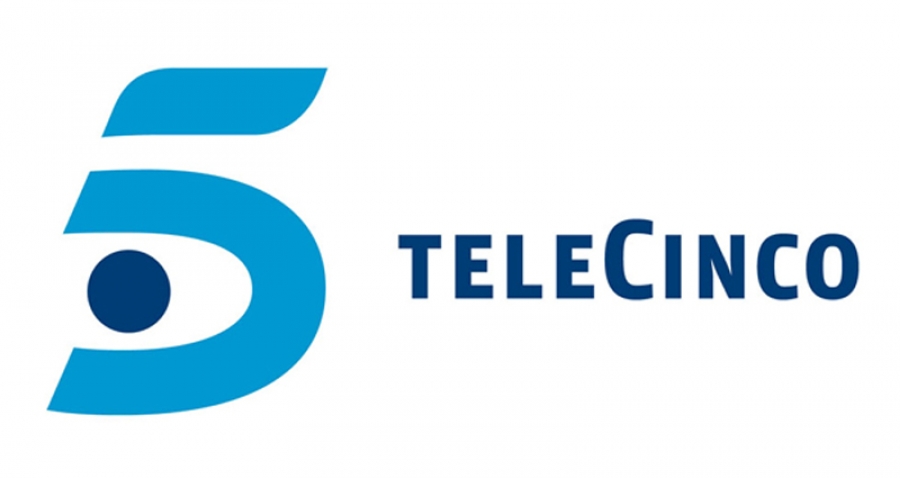
Spanish researchers launch crowdfunding campaign to design HIV detection method in newborns
TELECINCO.ES. October 23, 2014.
Researchers from the HIV Molecular Epidemiology Laboratory at the Ramón y Cajal University Hospital in Madrid have launched a crowdfunding campaign to develop a "reliable and low-cost" method for detecting HIV in newborns in countries with limited resources.
The goal is to raise a total of 25,000 euros through private donations within 90 days. Since the initiative was launched on October 9, they have already raised more than 5,734 euros through the website 'www.precipita.es/proyecto/metodo-de-deteccion-precoz-del-vih-en-ninos-menores-de-18-meses.html'.
Read full article here
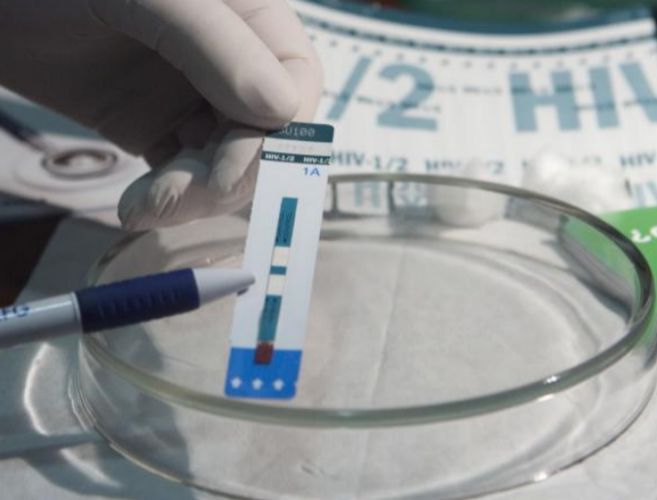
A race against HIV
EL MUNDO. October 23, 2014.
It's a simple, inexpensive method and could be perfect for detecting HIV in children under 18 months in poor countries, where infections are concentrated. But its creators don't have the 25,000 euros needed to get it off the ground.
"We believe we can develop an early genetic diagnostic technique for the infection in the first weeks of life using just two drops of blood collected on special paper, which simplifies the processes and reduces costs," explains África Holguín, specialist at the HIV Molecular Epidemiology Laboratory of the Microbiology Service of the Ramón y Cajal Institute for Health Research (IRYCIS).
Read full article here

RNE Mornings with Alfredo Menéndez
RNE Mornings. October 20, 2014. "Precipita", the crowdfunding platform for scientific projects
Chema García Langa presents "Precipita," a crowdfunding platform for scientific projects launched by the Spanish Foundation for Science and Technology (FECYT). Its director, José Ignacio Fernández Vera, explains that the initiative is useful for "opening science to society." They are joined by África Holguín, a researcher participating in the platform with a project for the early diagnosis of HIV in children under 18 months old.
Listen here

Innovation and pioneering research in the fight against AIDS
HEALTH FOR ALL. May 24, 2013.
Pioneering research line in the field of HIV/AIDS
As part of the "For a world without AIDS" program, Health for All asked me to share my experience in a research project we conducted in collaboration with the Global Fund and the Ministry of Health of El Salvador. To provide context for this work, it is necessary to mention that one of the research lines of our group, pioneering in Spain, is the optimization of molecular techniques for monitoring human immunodeficiency virus (HIV) infection with cheaper and simpler methods using dried blood spots (DBS). We also carry out theoretical-practical training activities, scientific advice, and technology transfer in the field of HIV/AIDS at the international level. The ultimate goal of all this is to implement these molecular techniques in low-resource countries, where the majority of the 34 million infected people live and the highest number of different virus variants circulate. Thus, with just two to four drops of dried blood from an infected person collected on special filter paper, we are able to perform the molecular and serological diagnosis of the virus, determine if the virus is resistant to antiretroviral drugs and which ones, ascertain the amount of virus in the blood of the infected person, and identify the variant of HIV infecting them.
Read full article here

